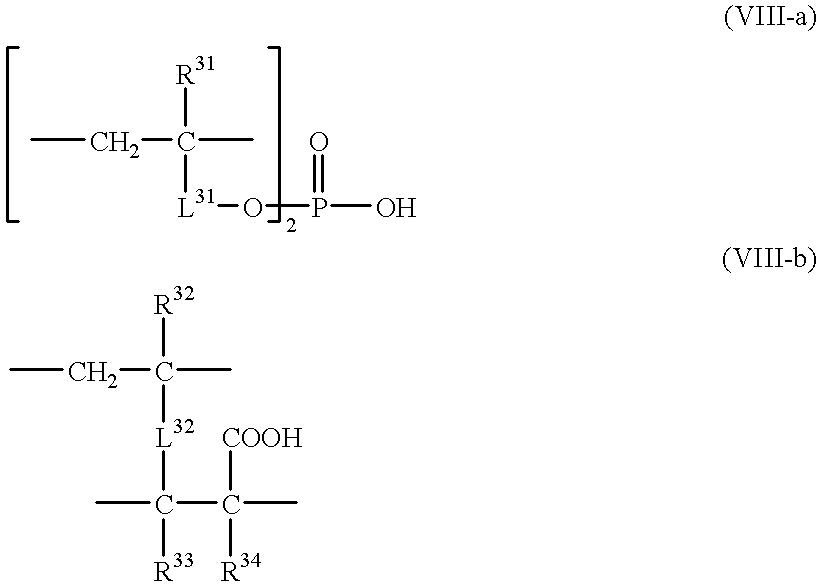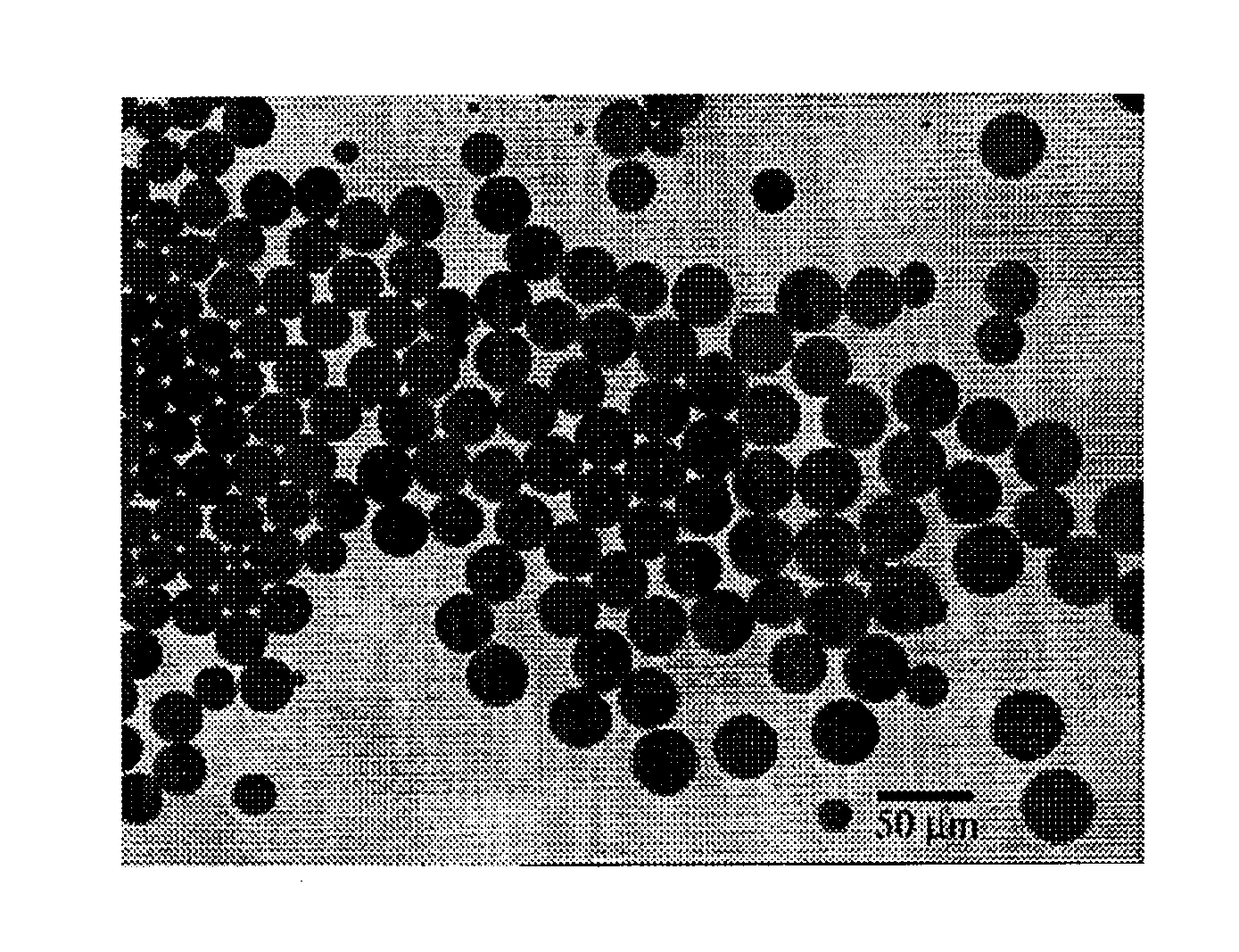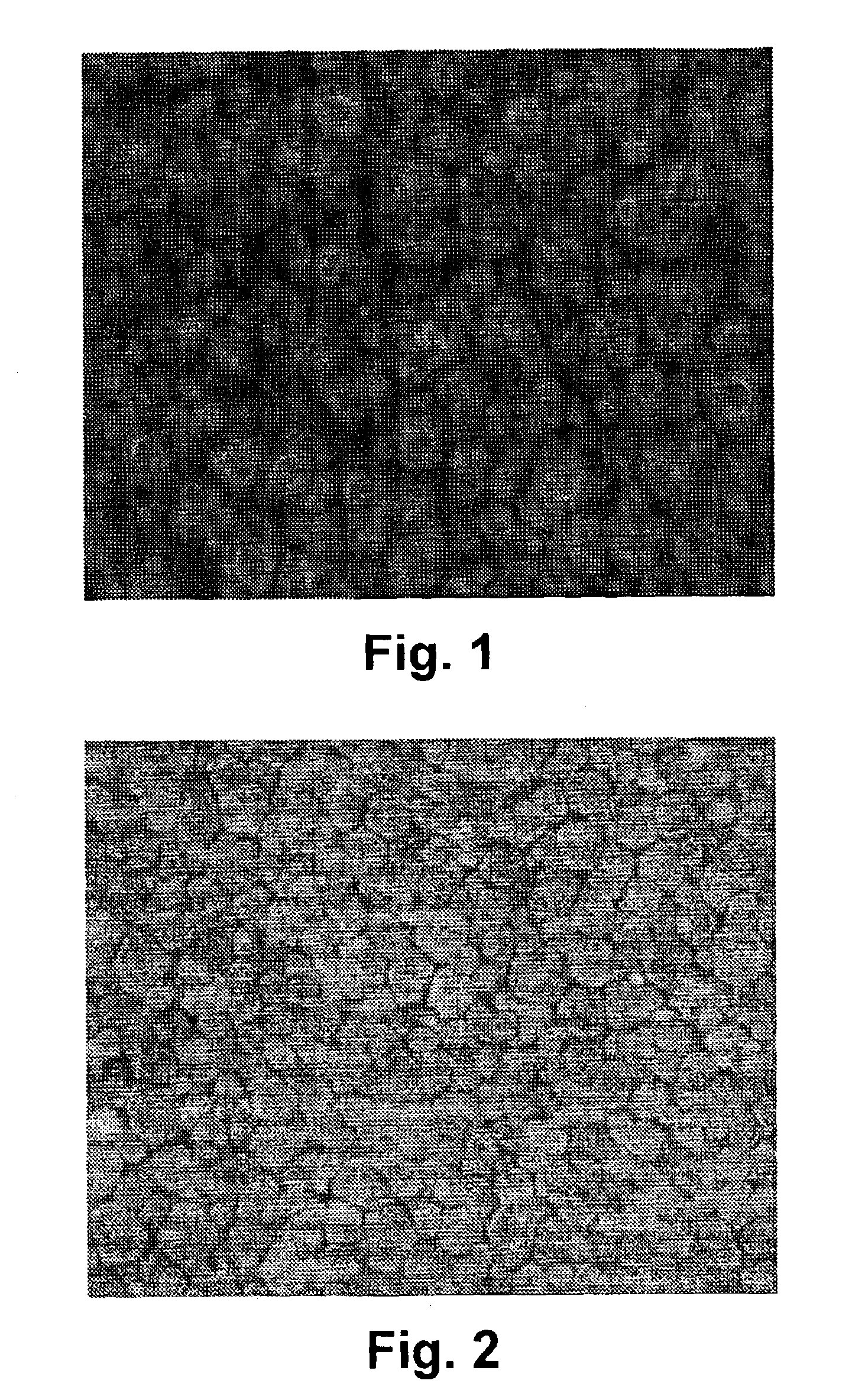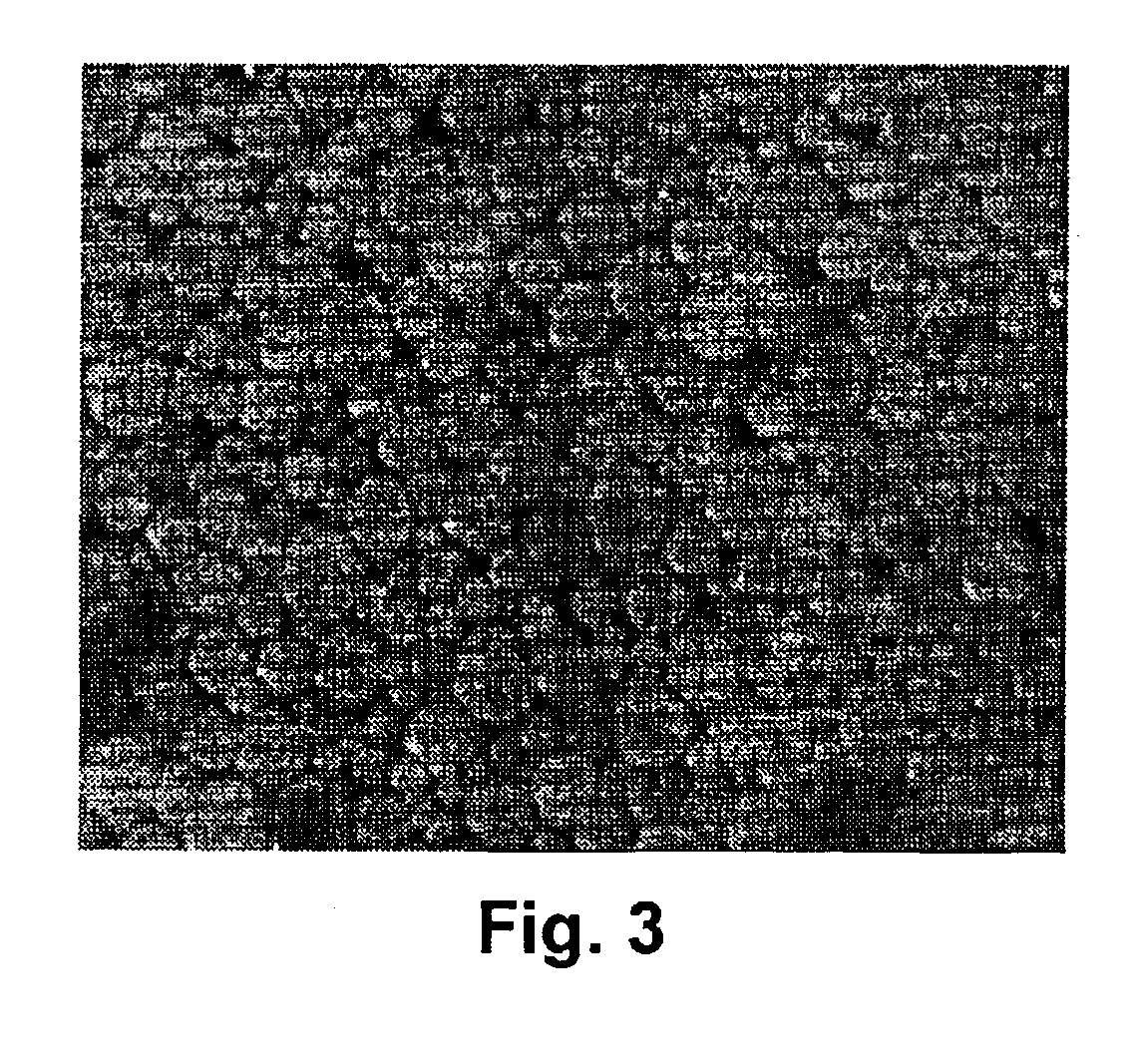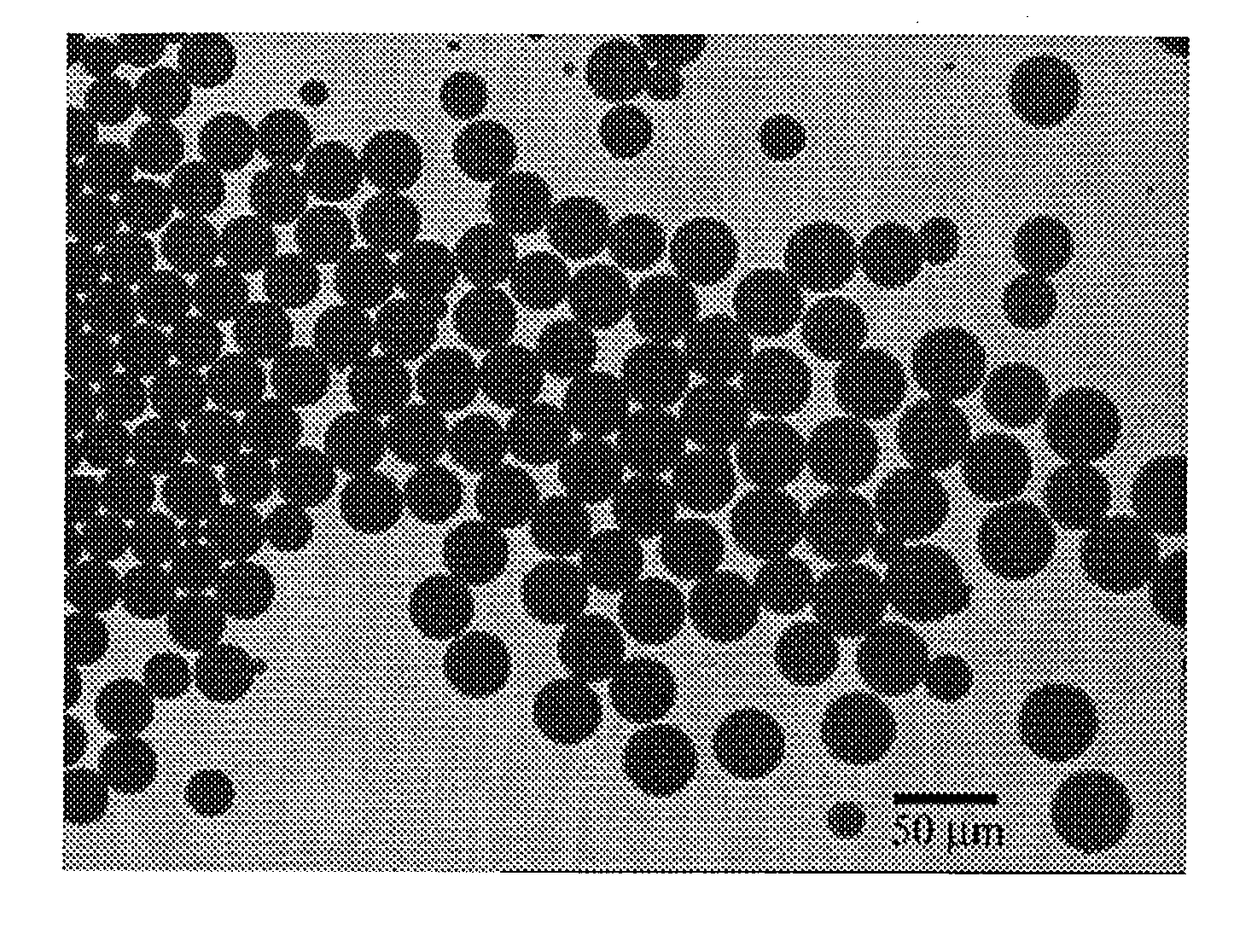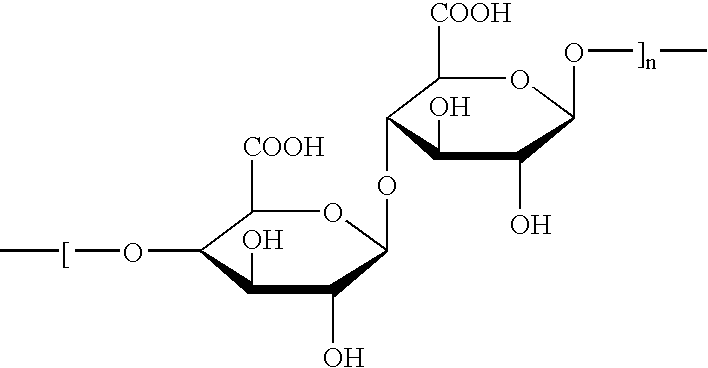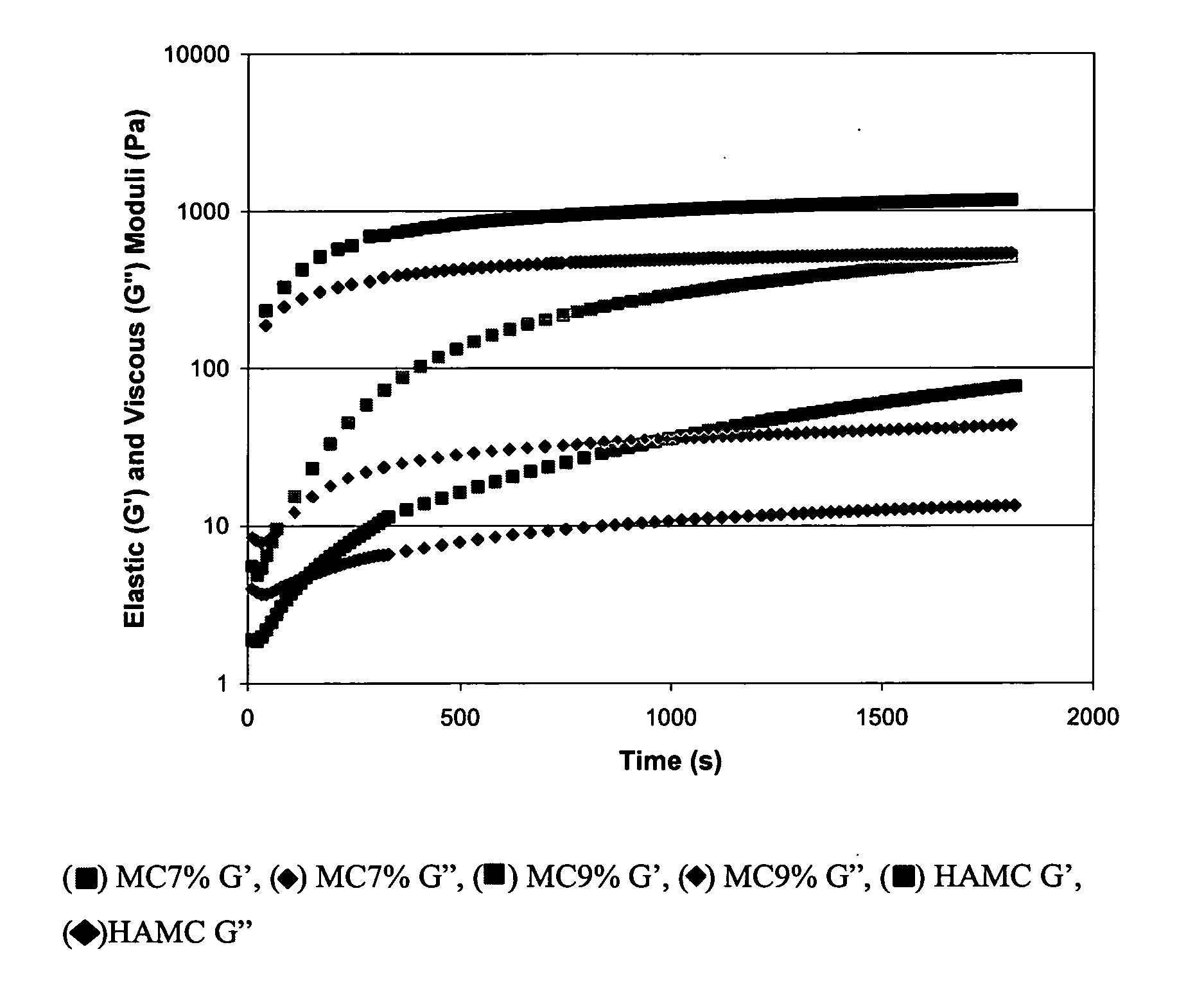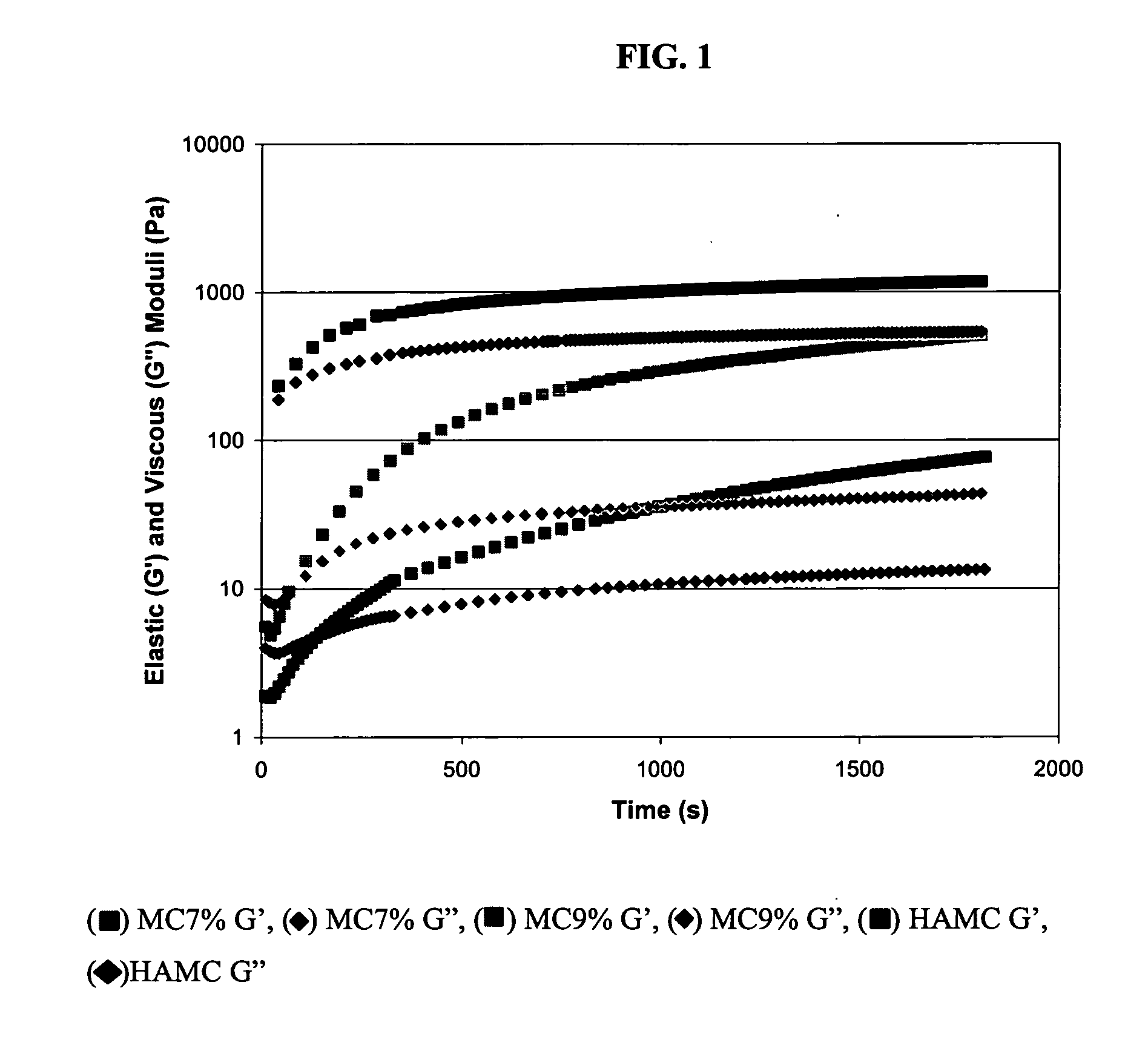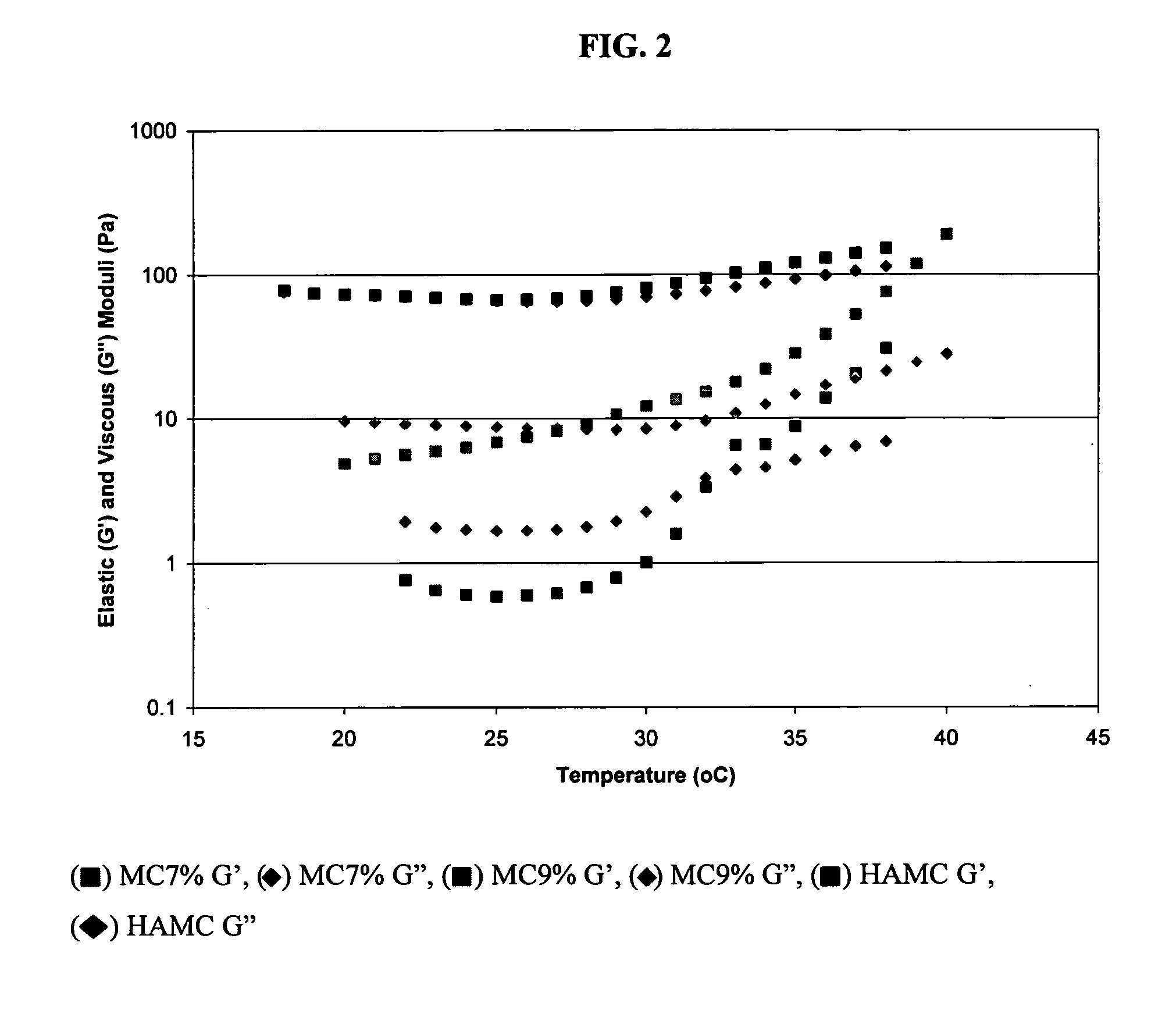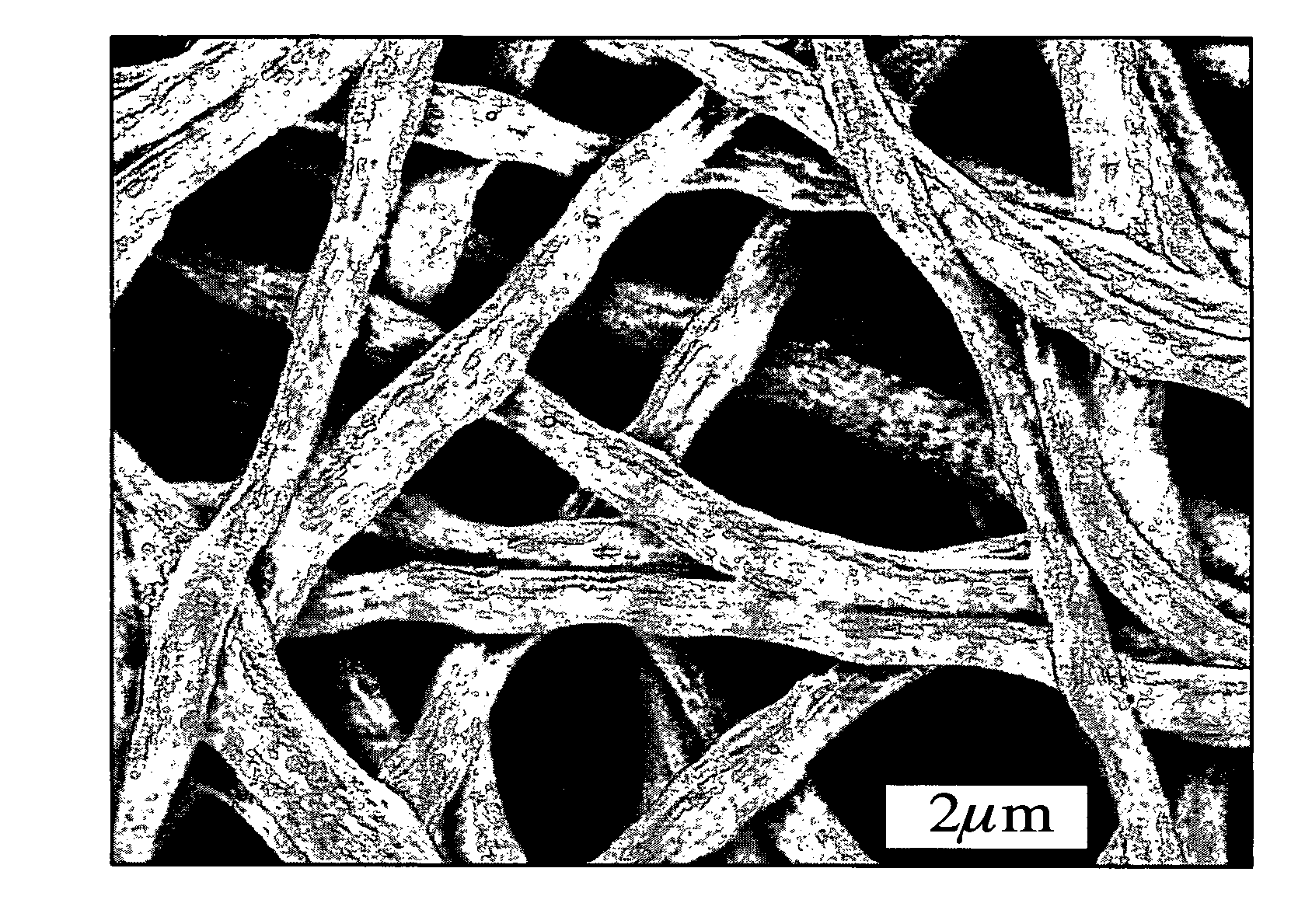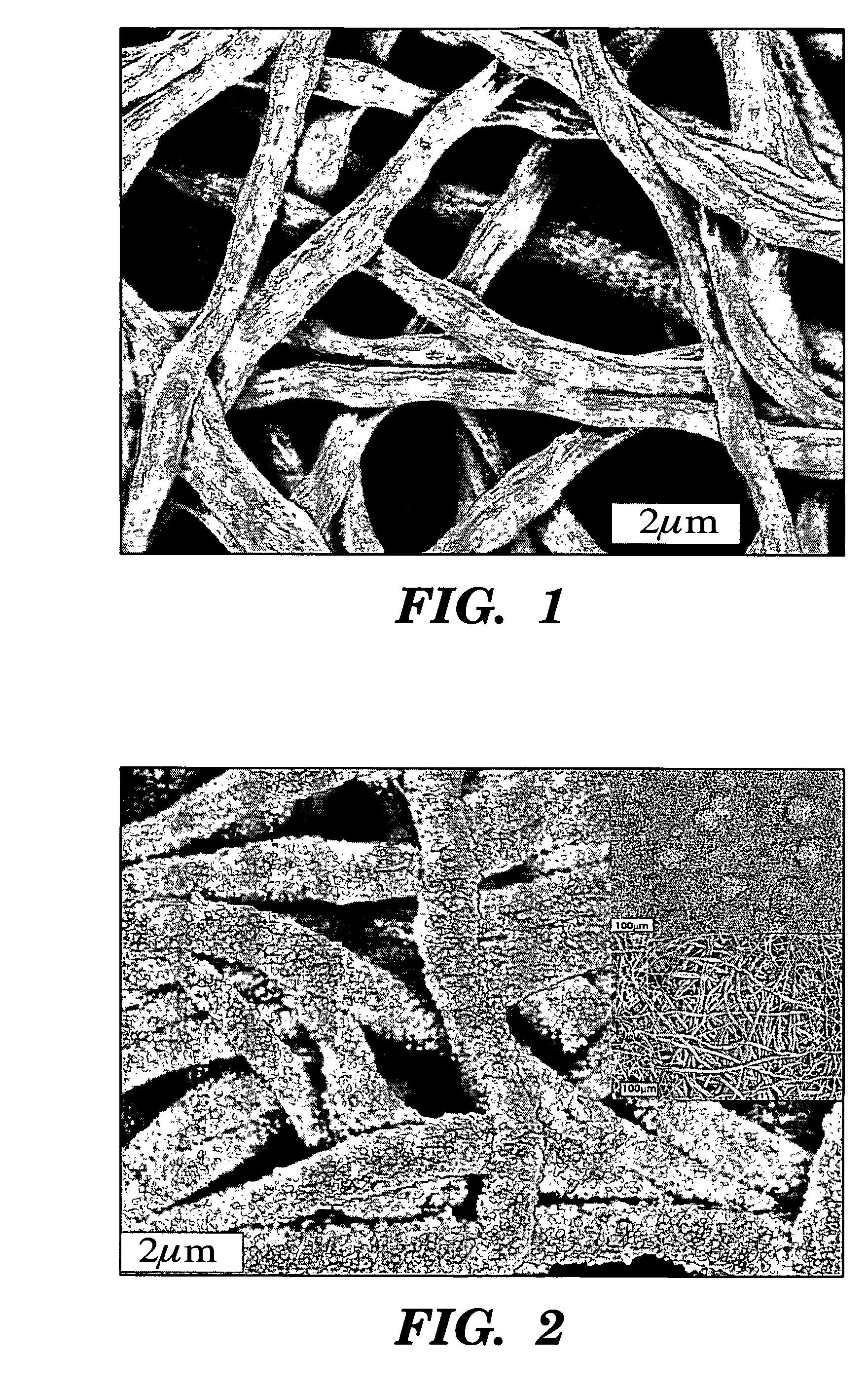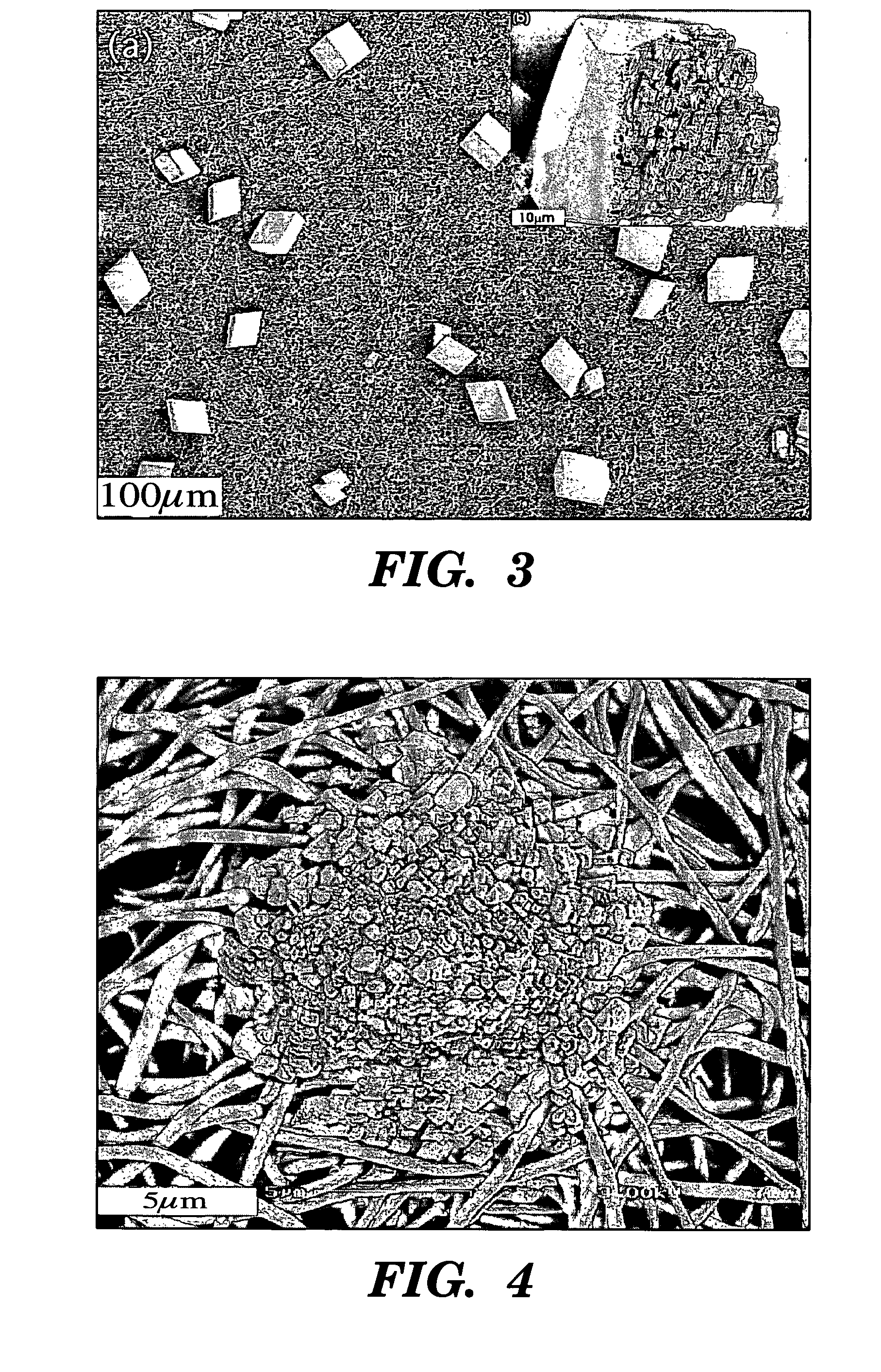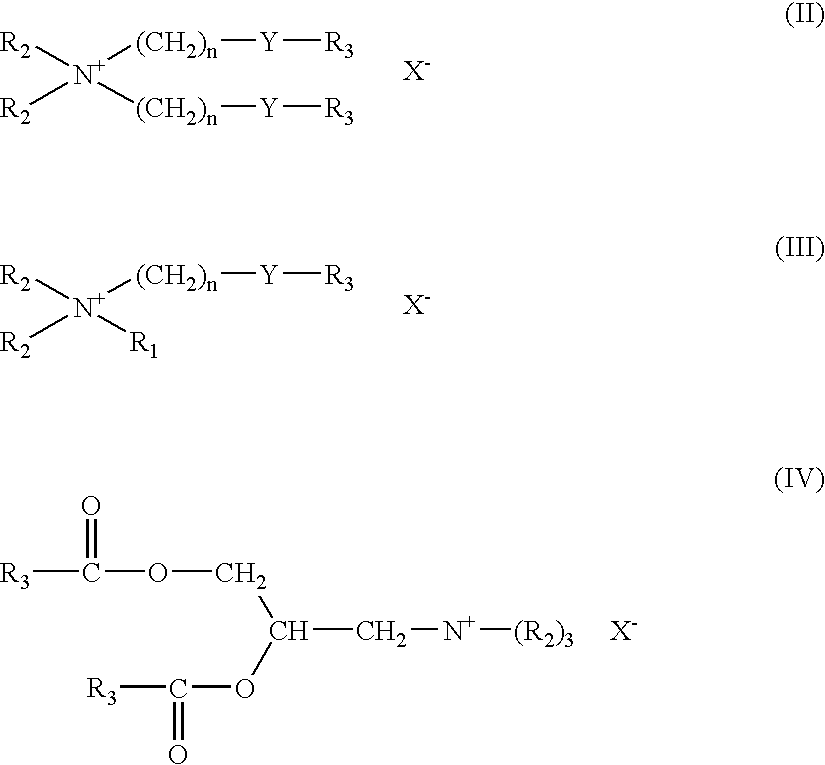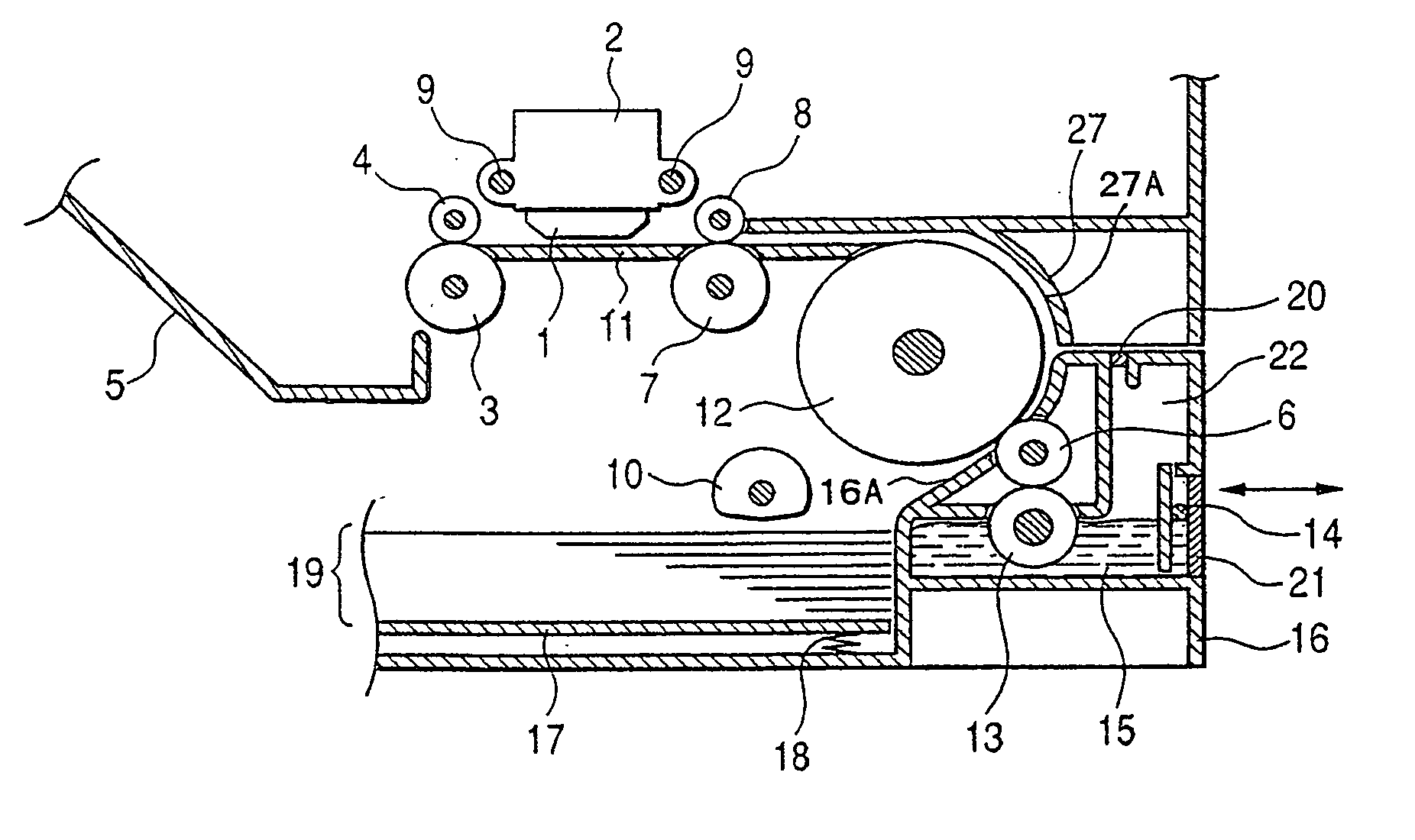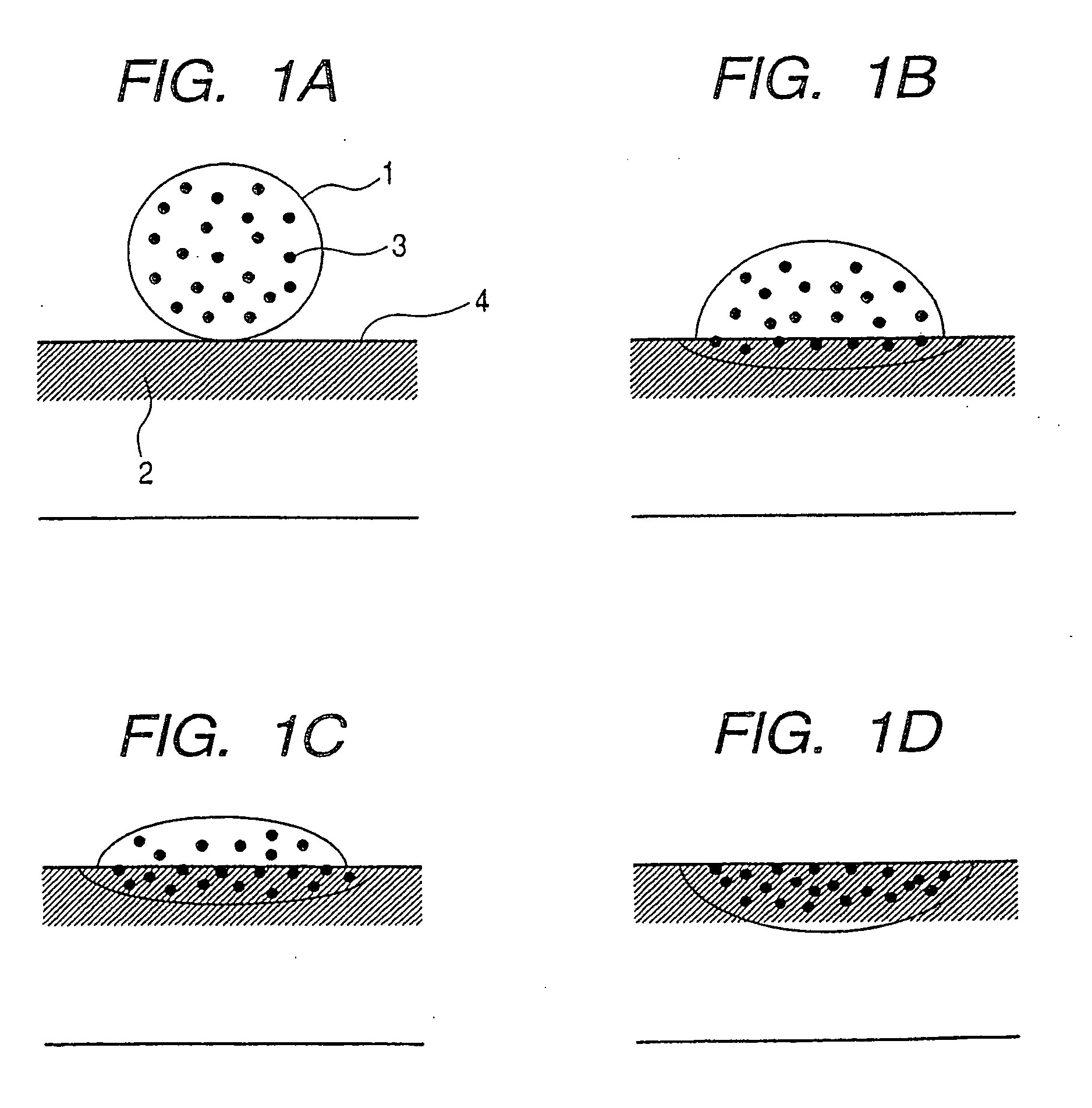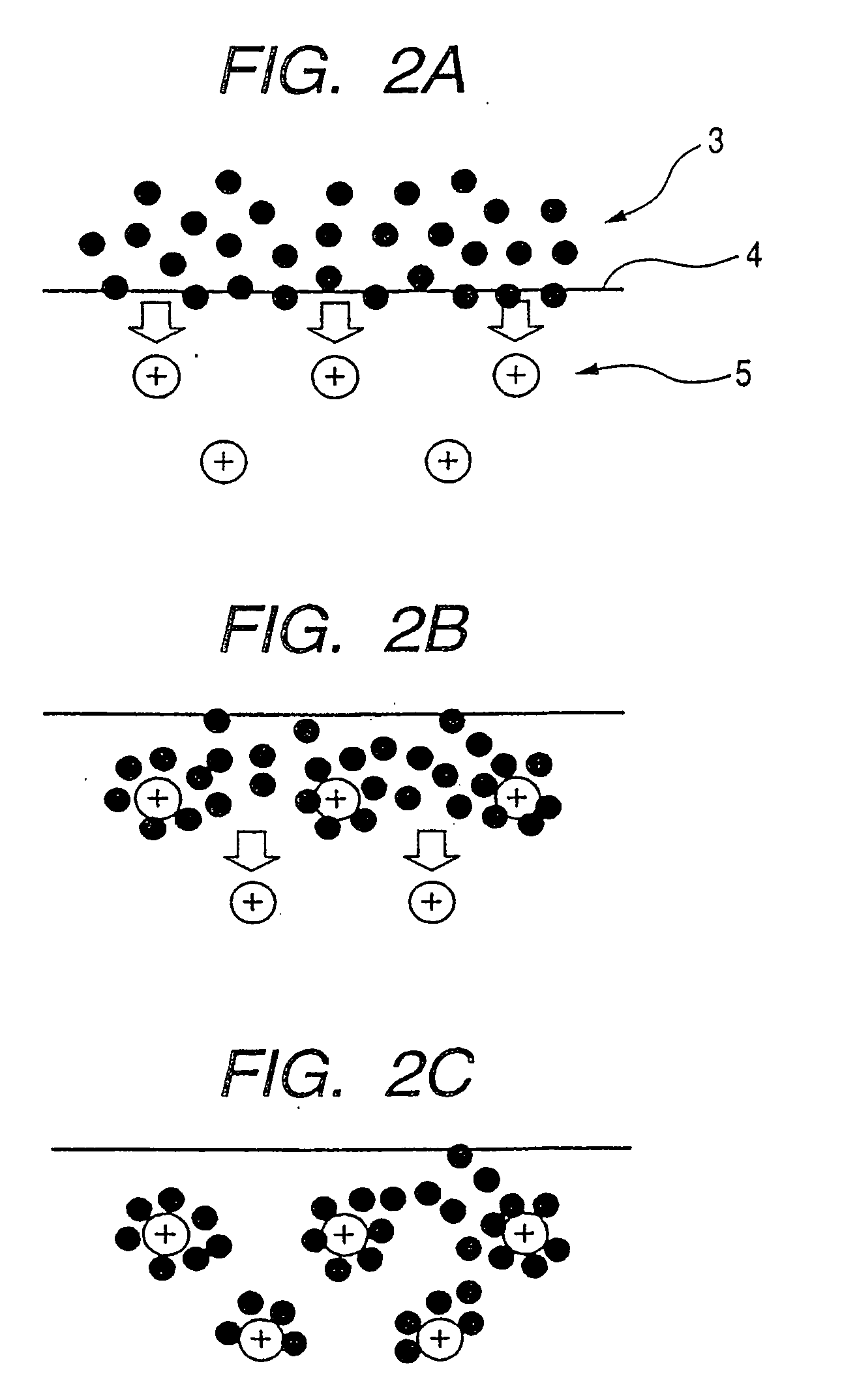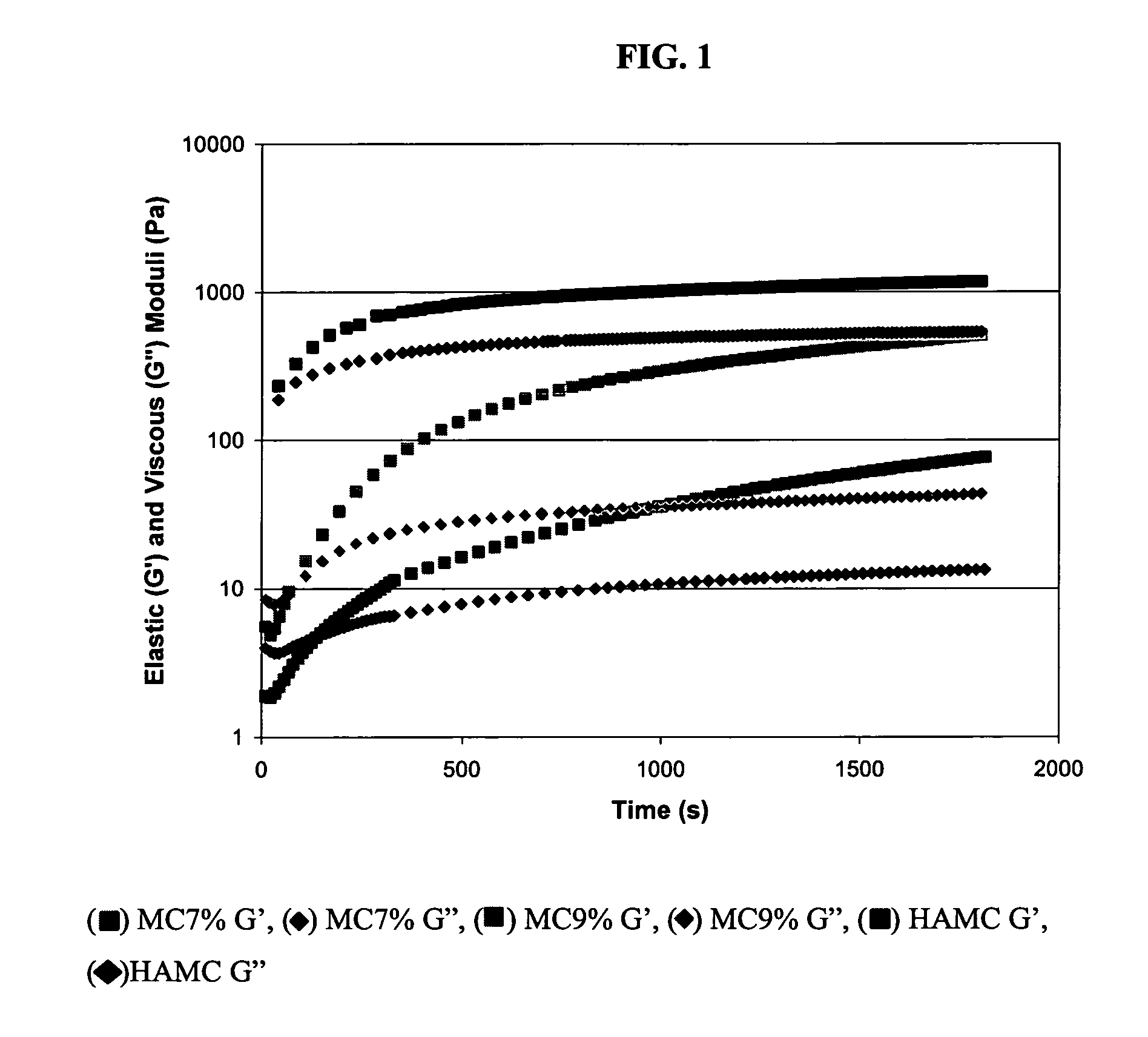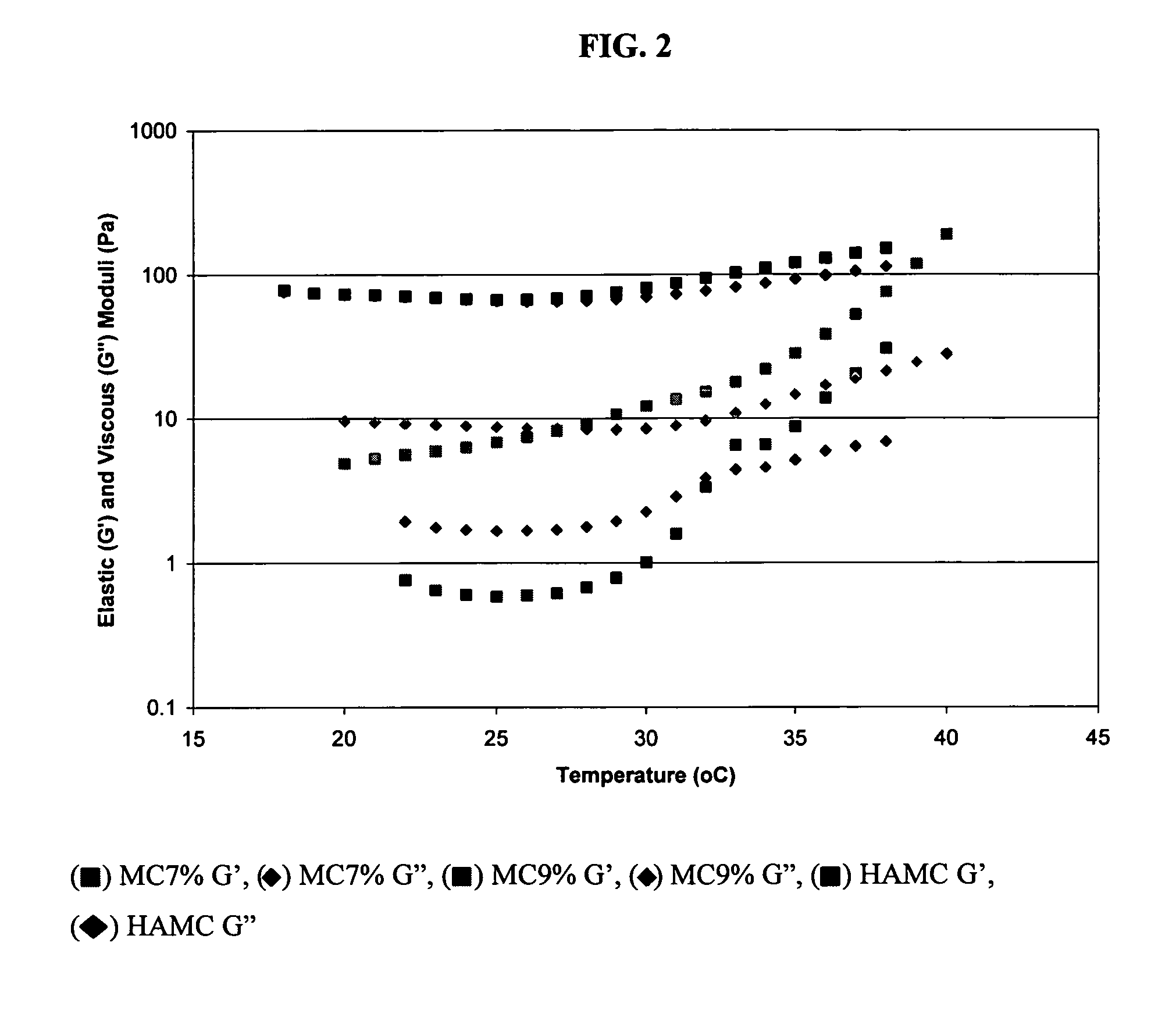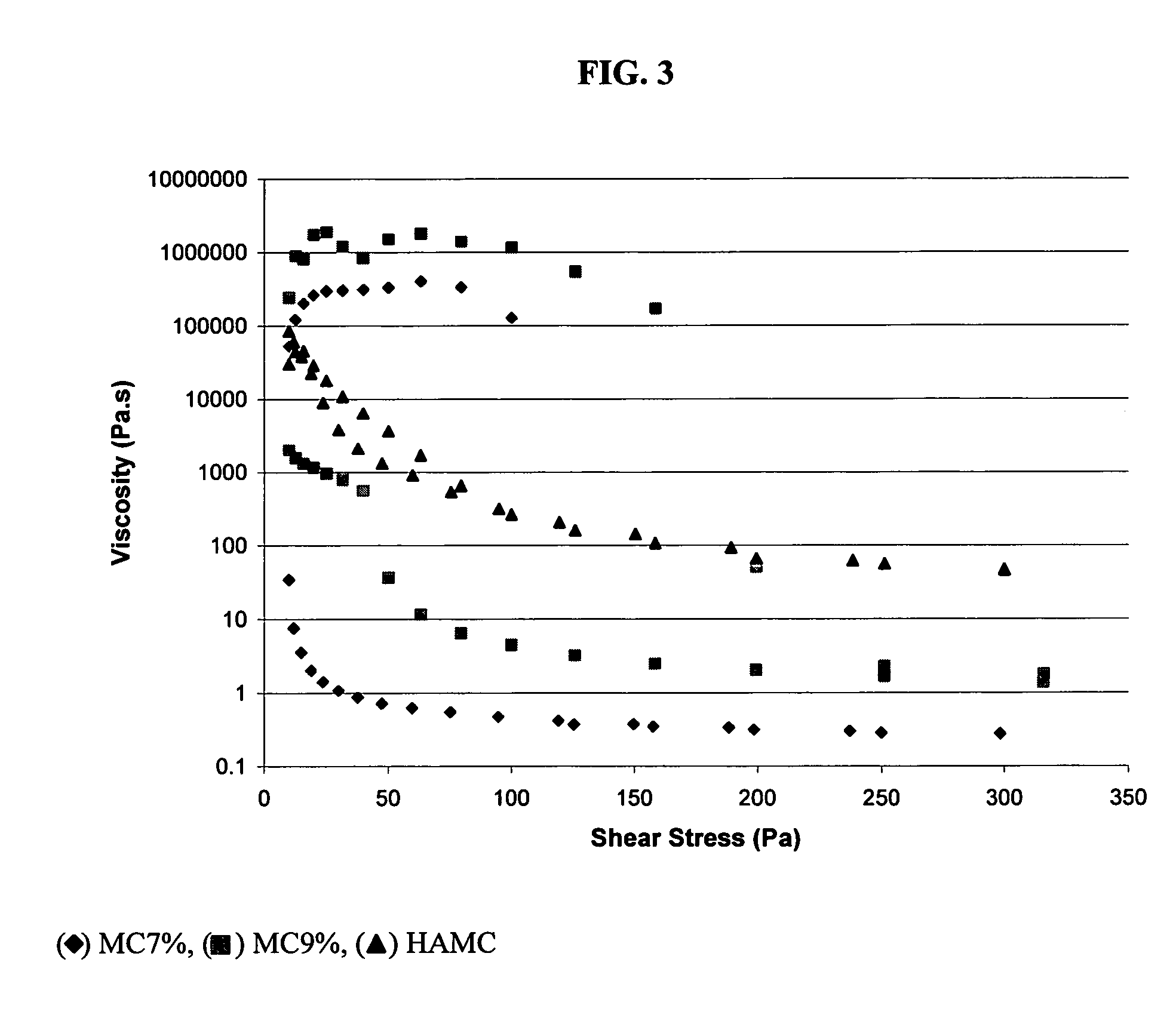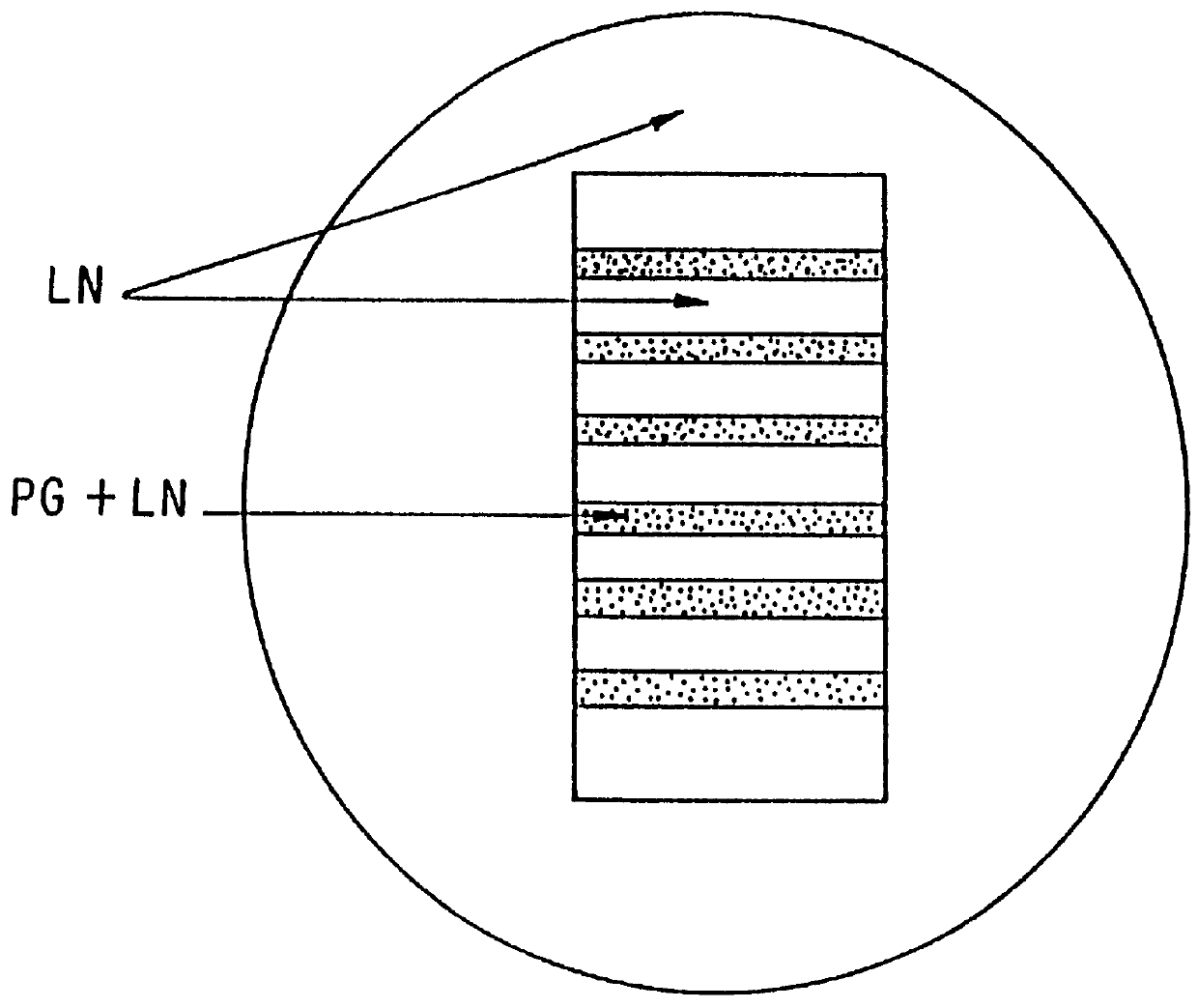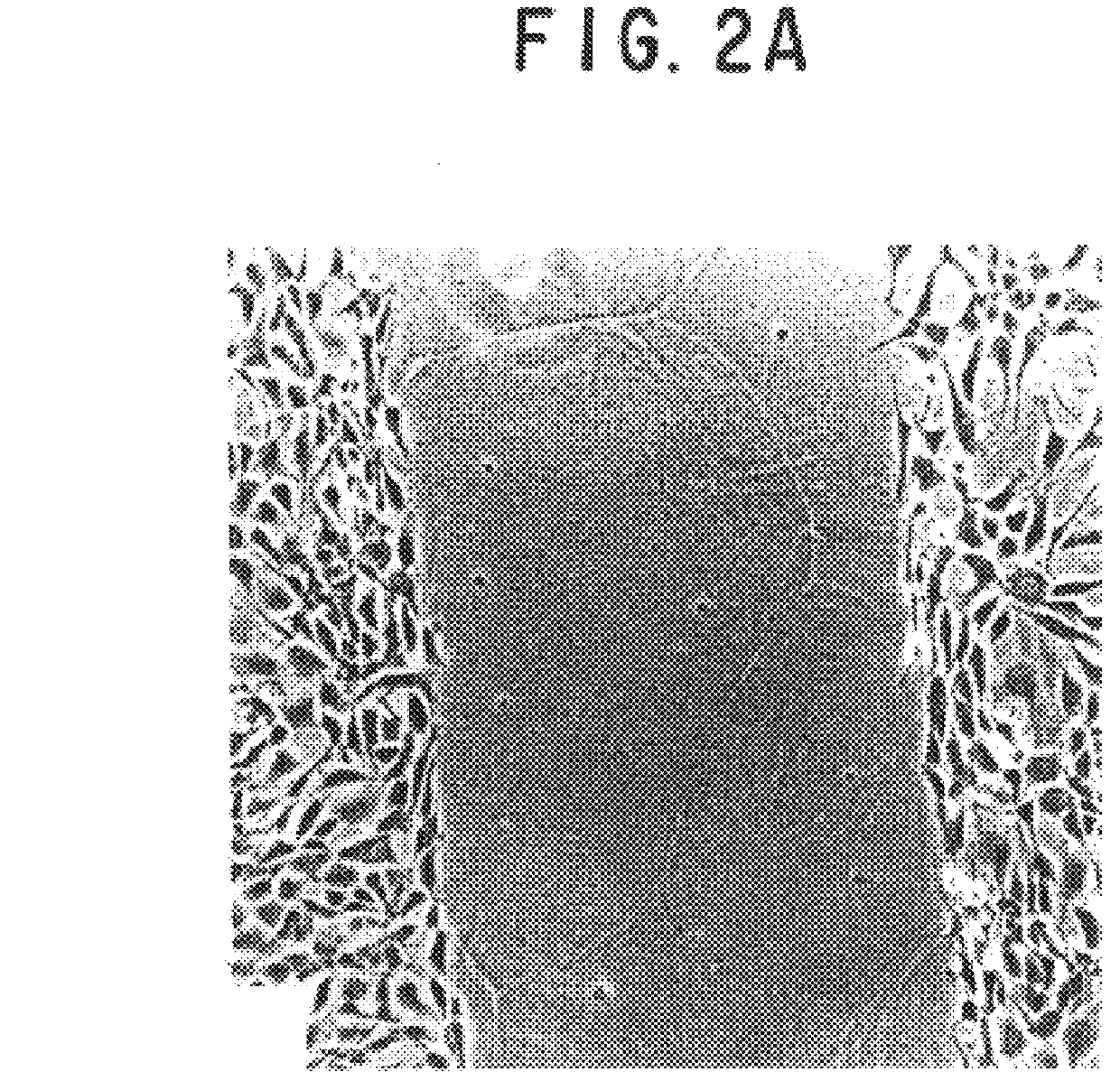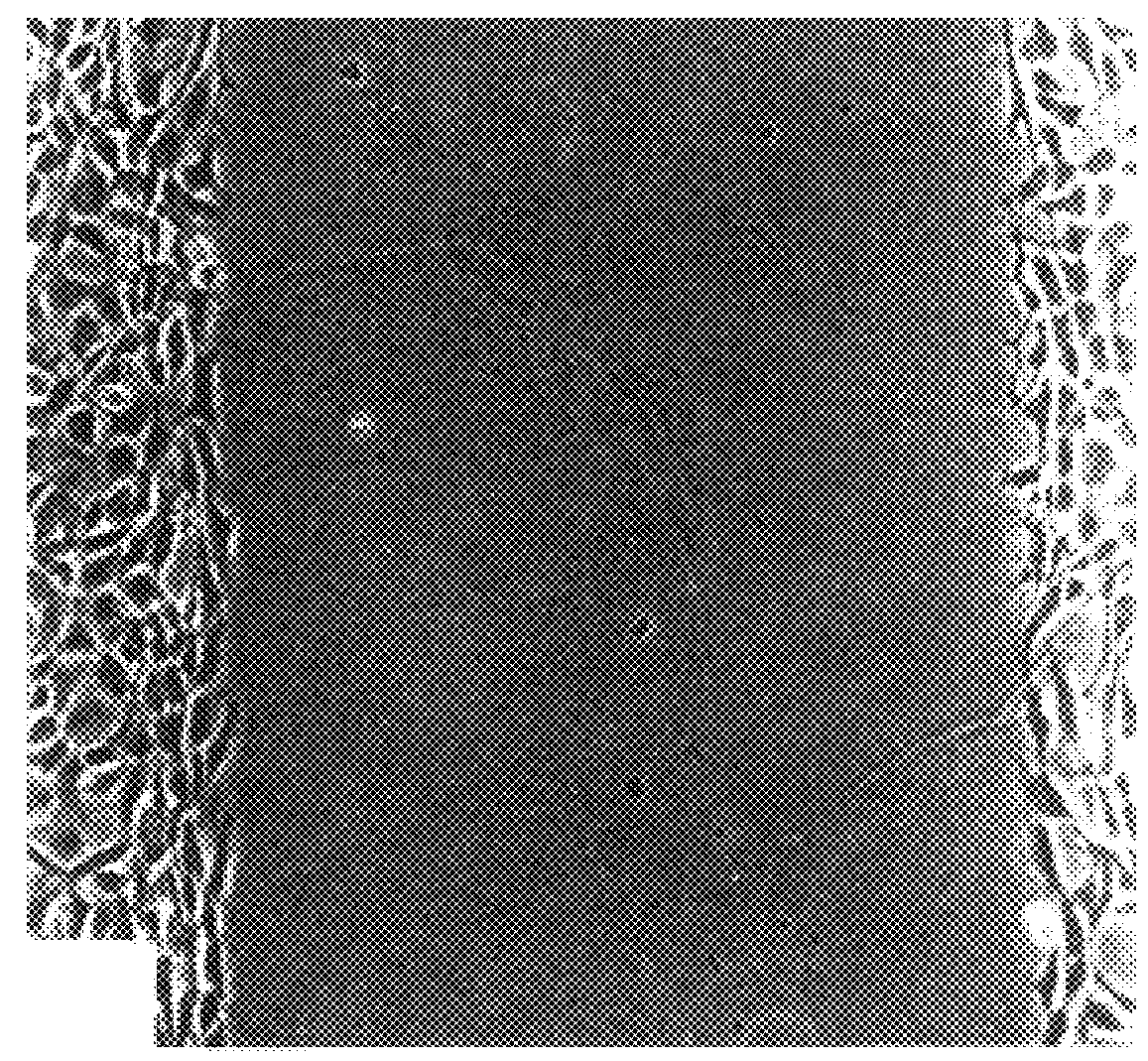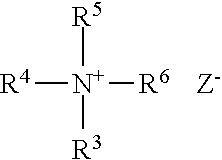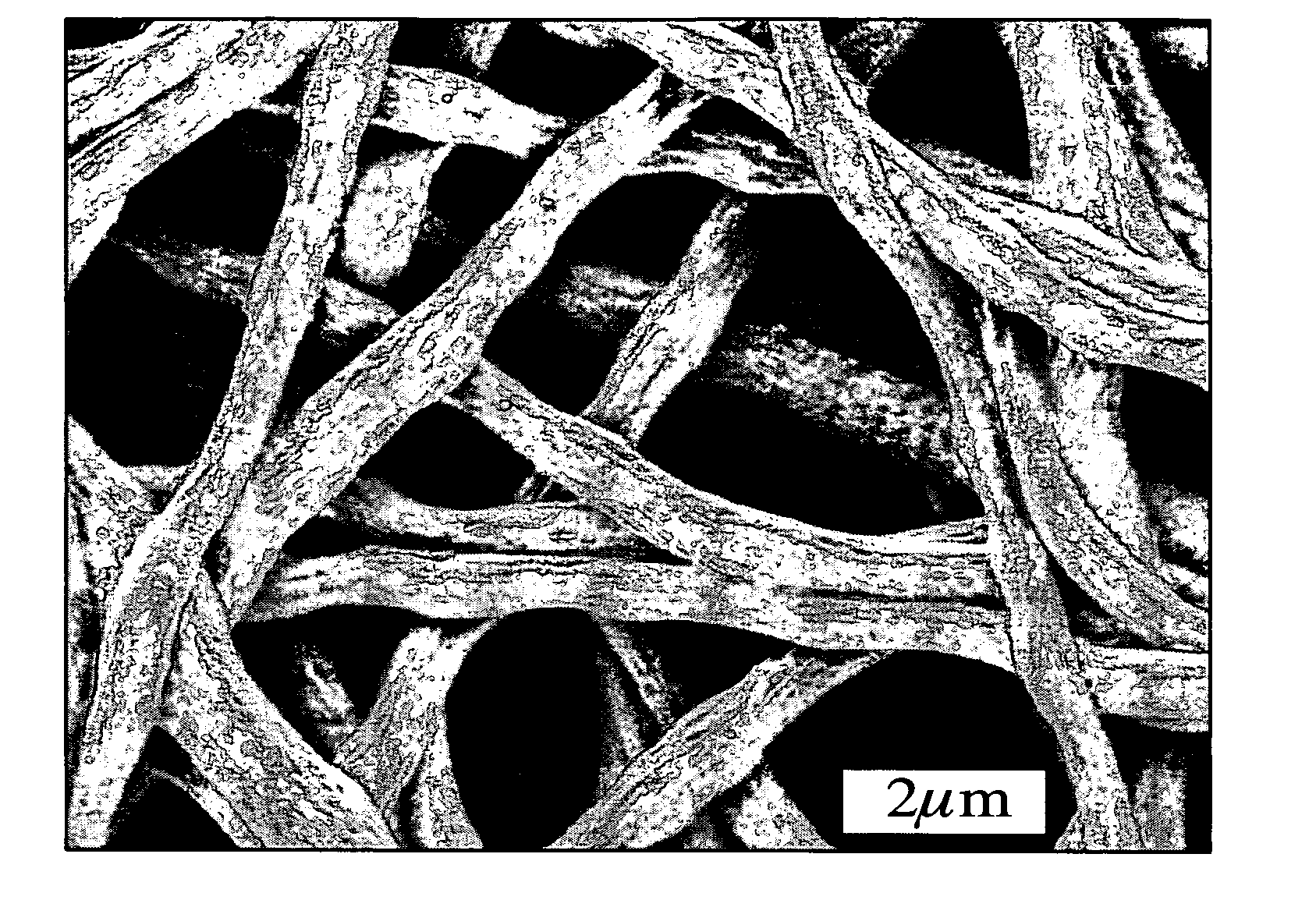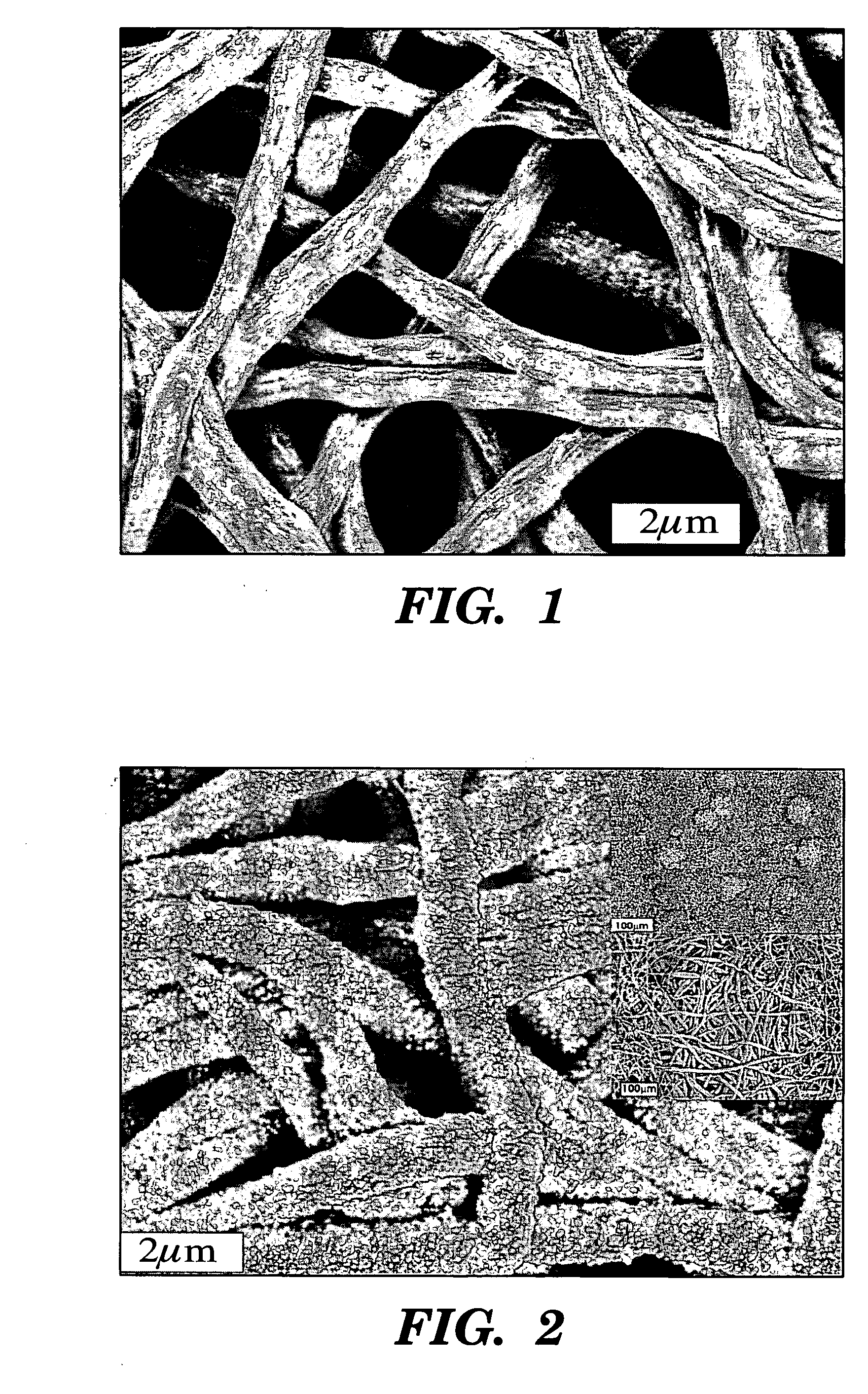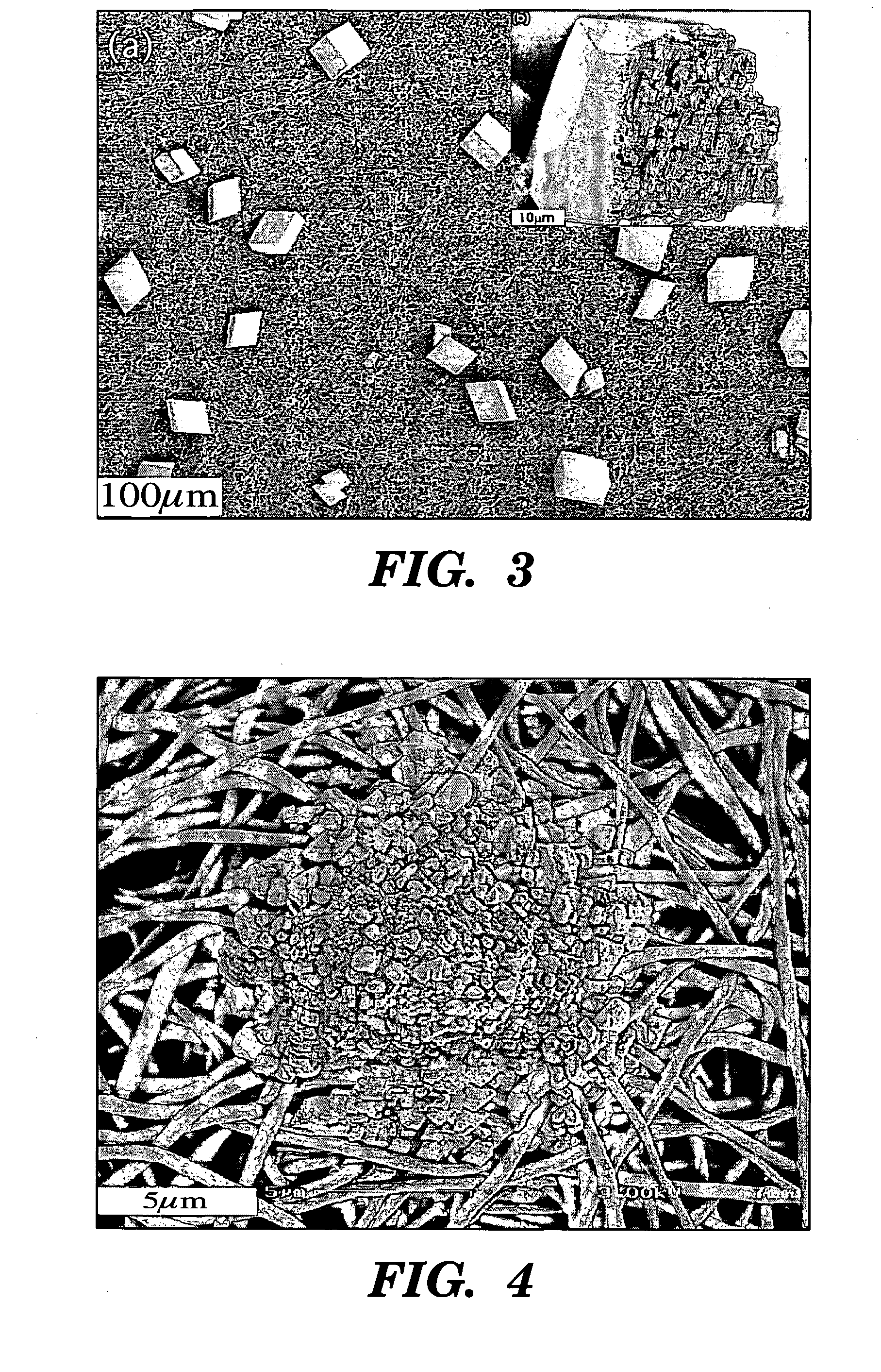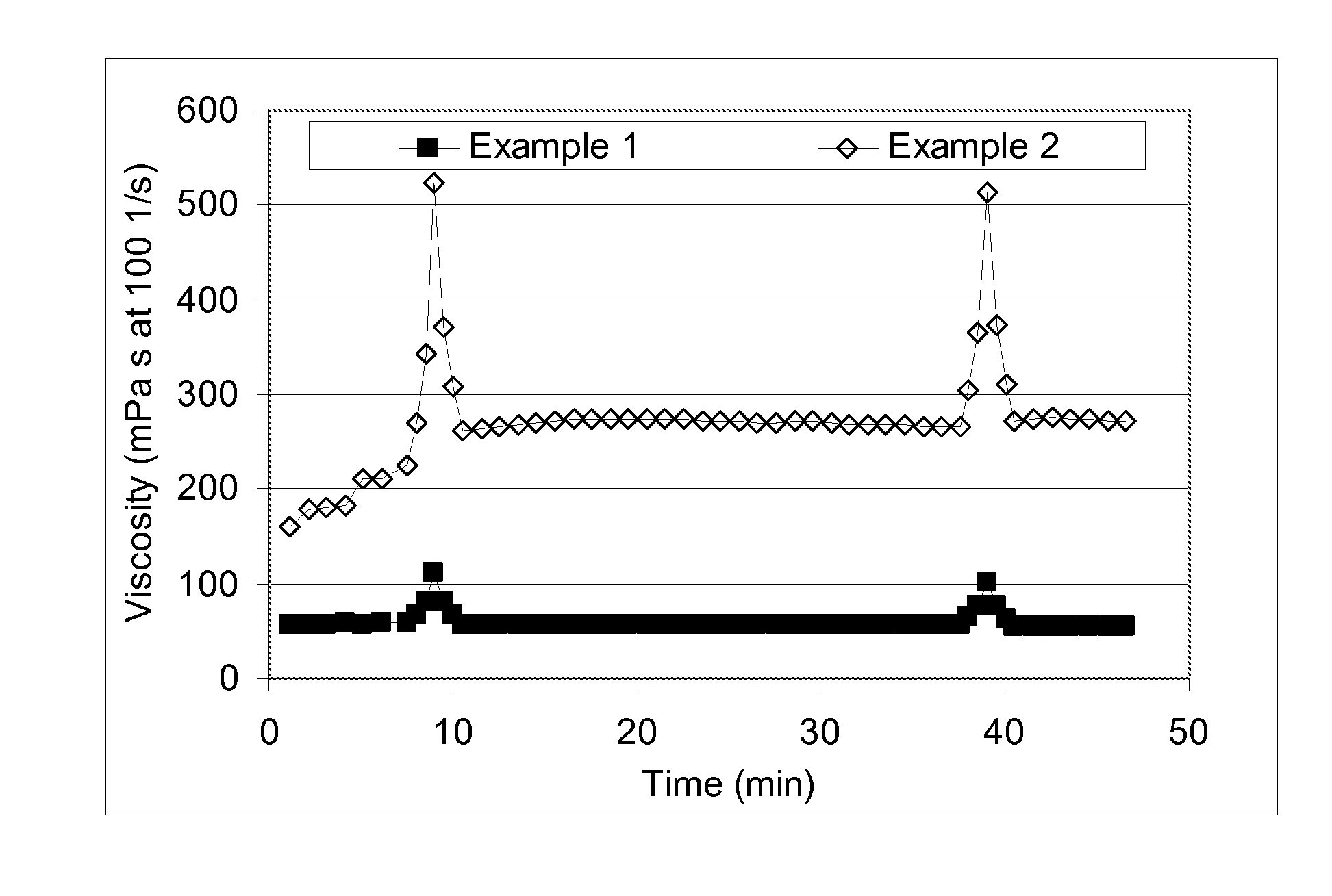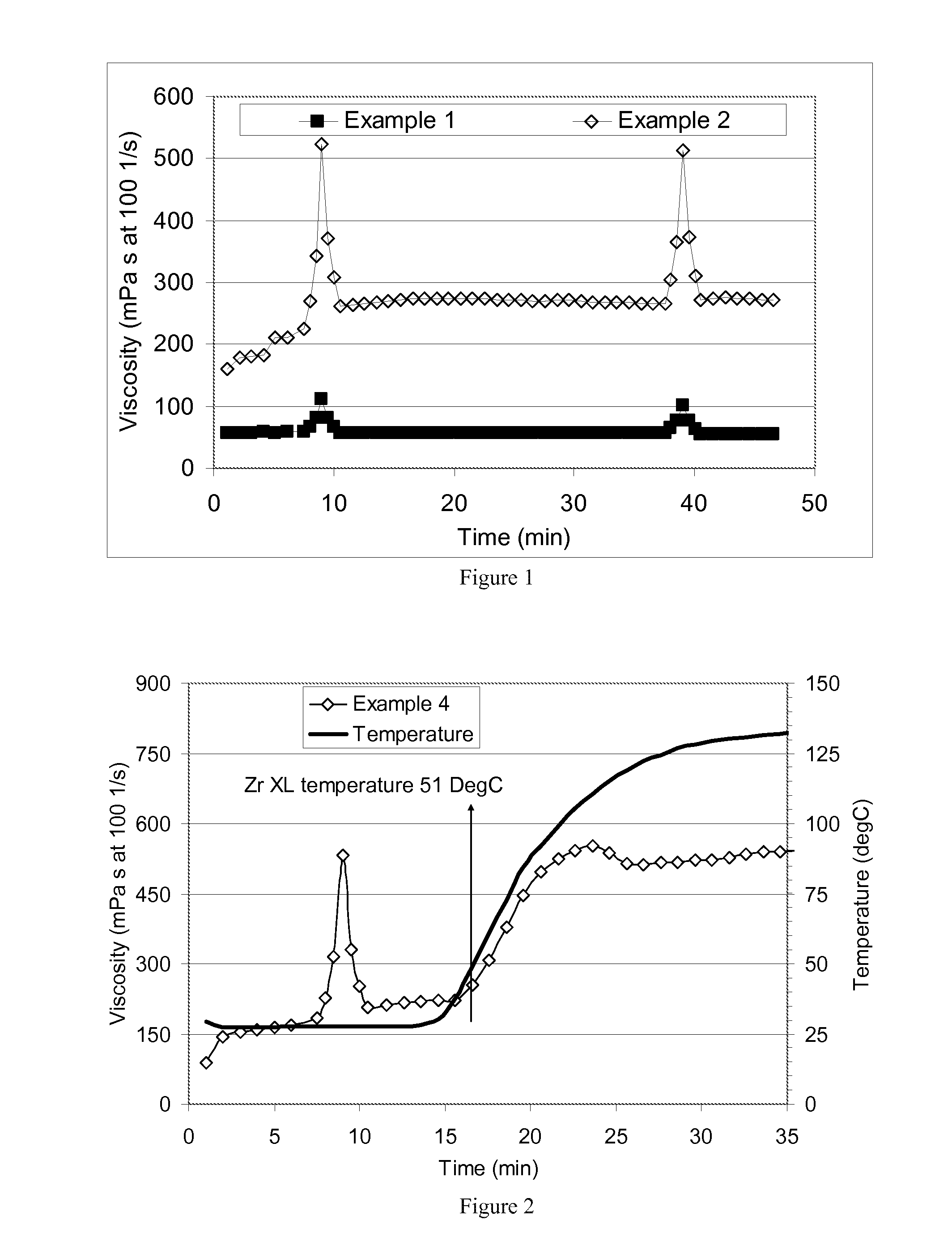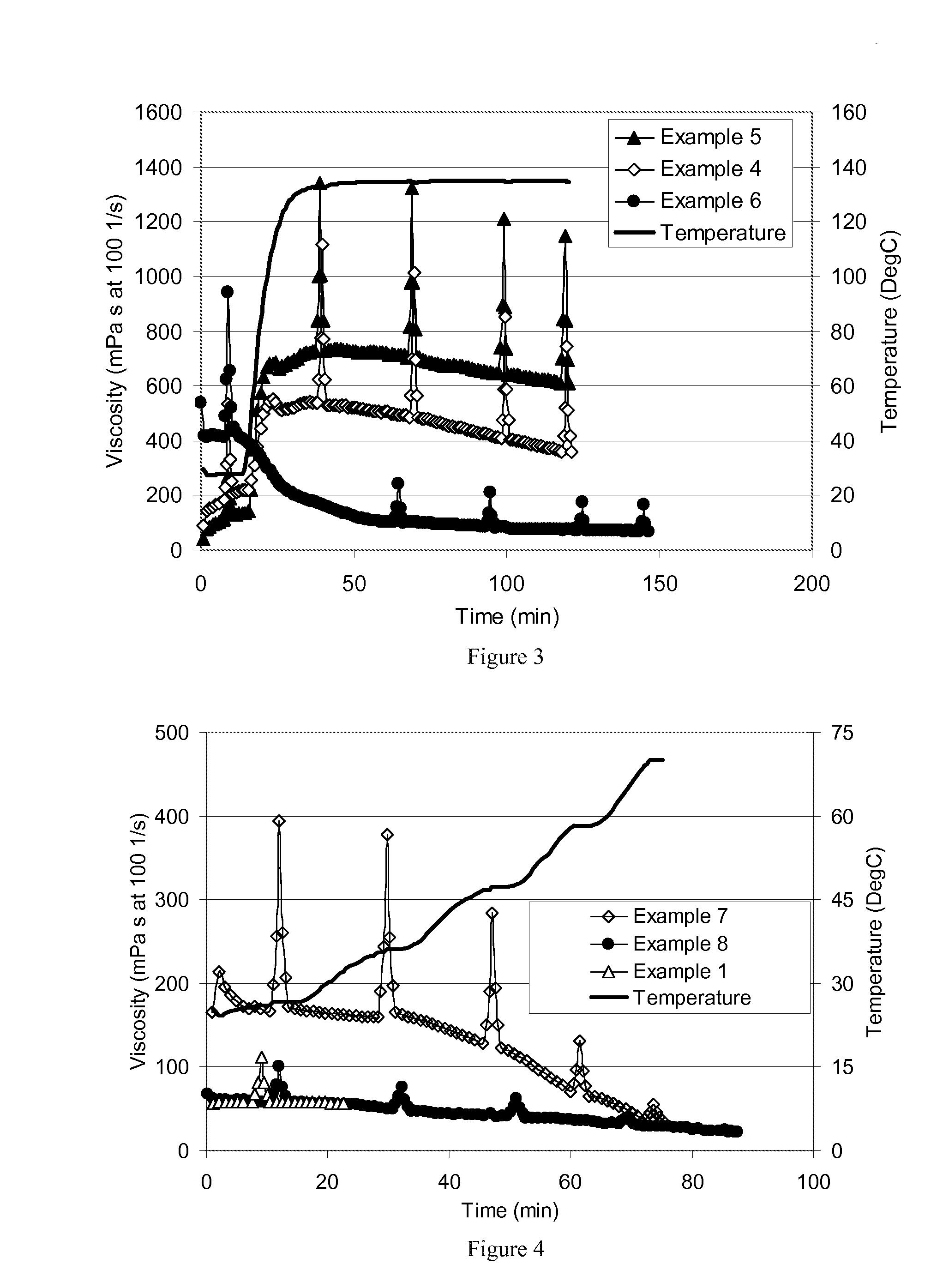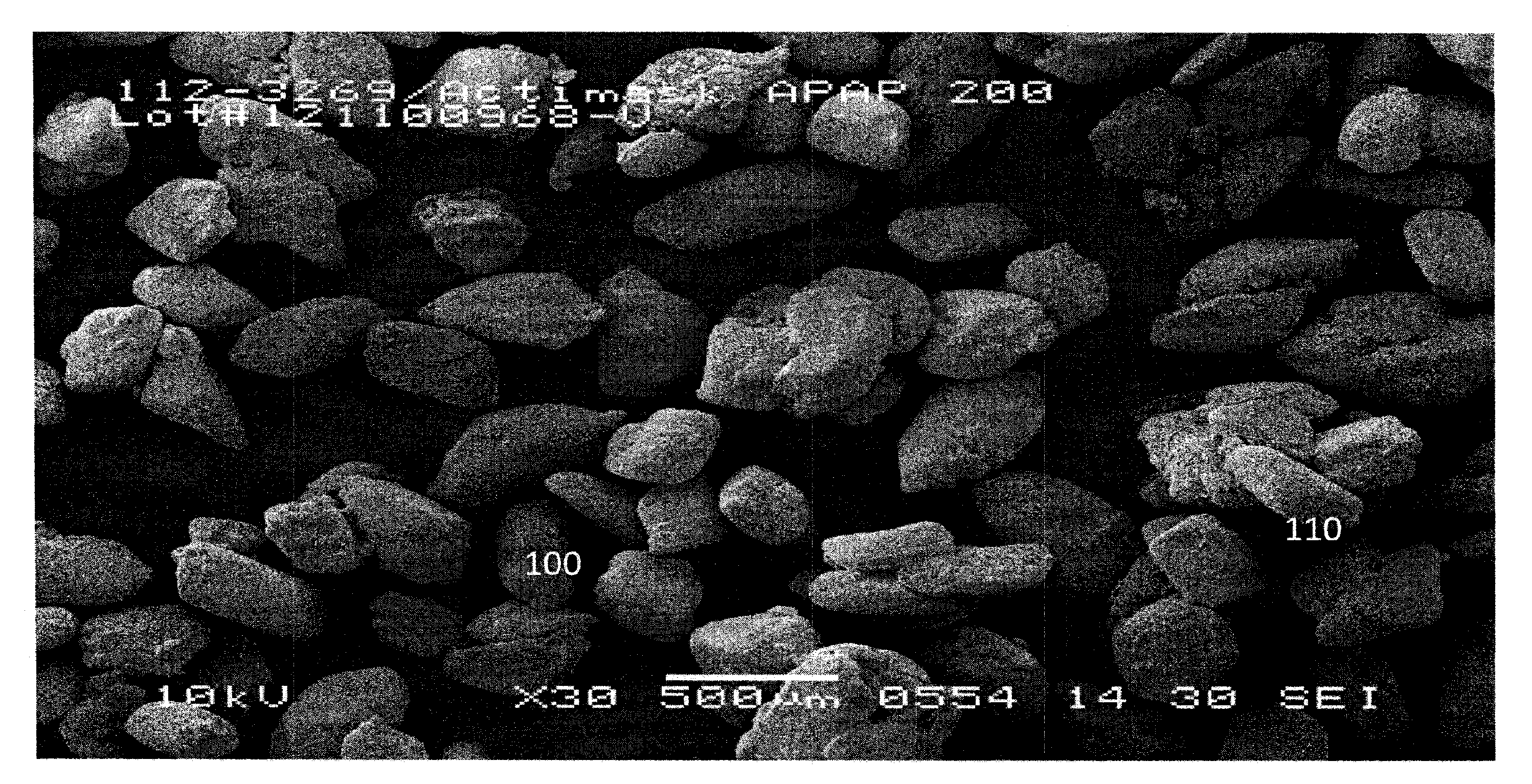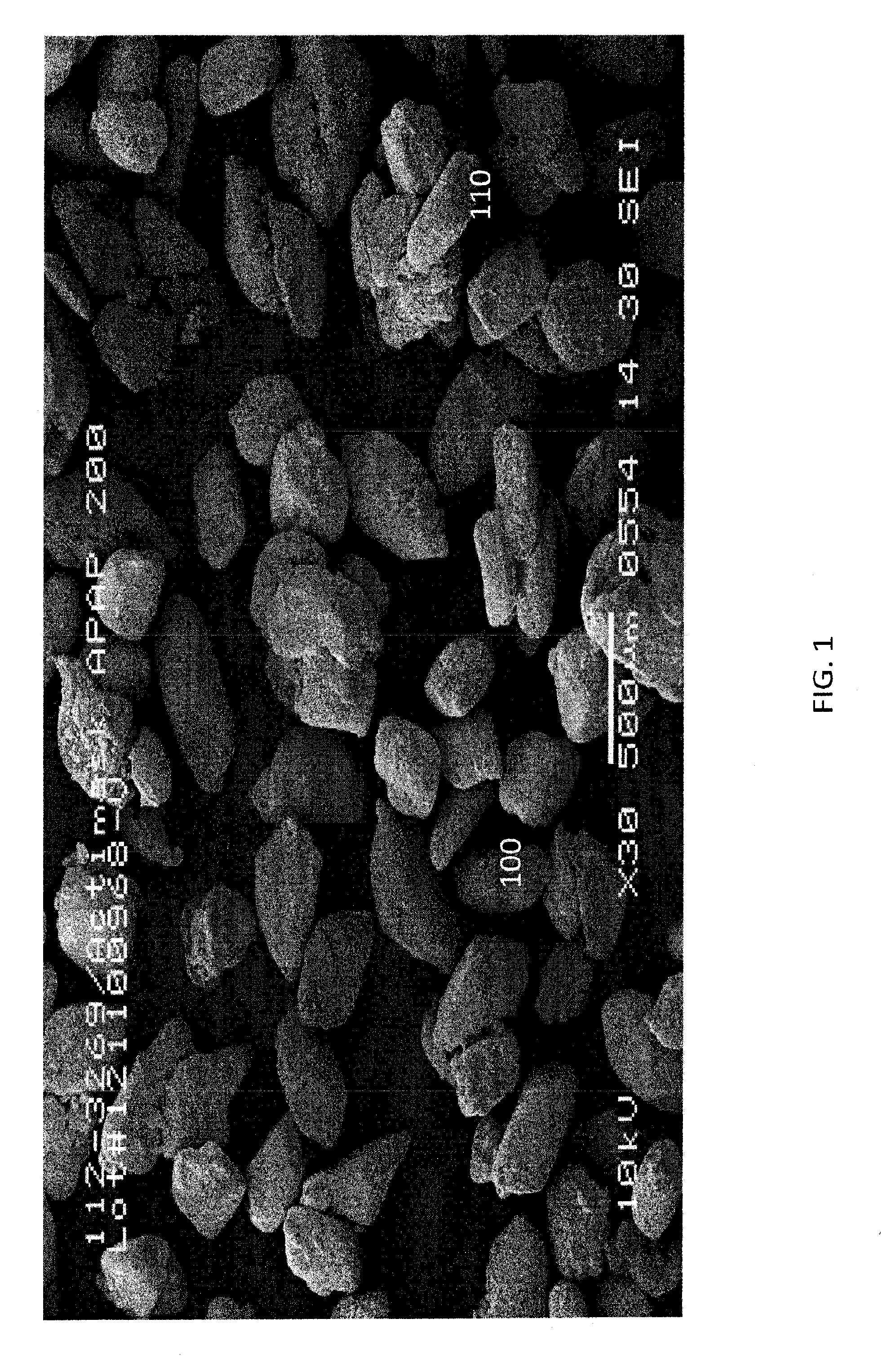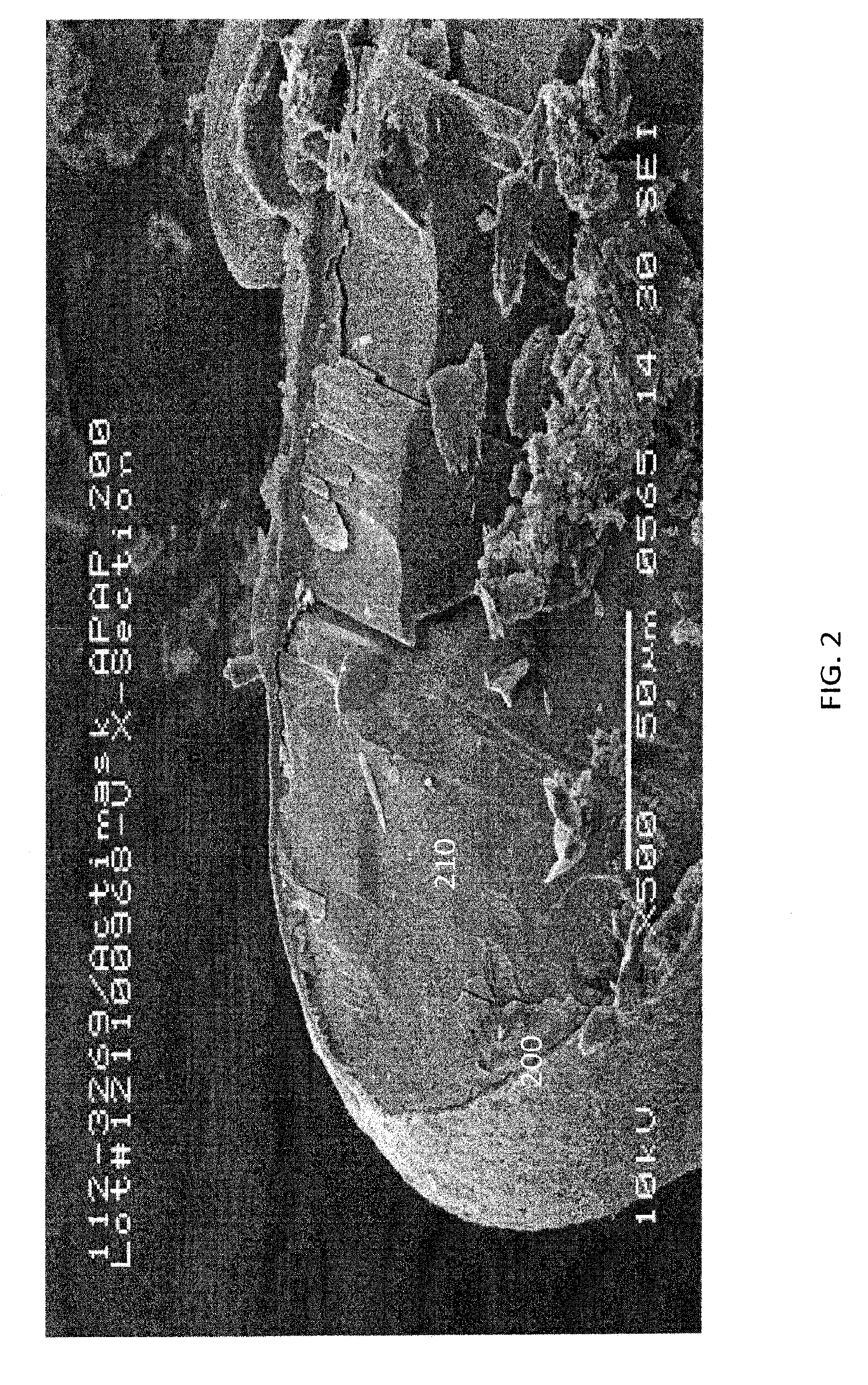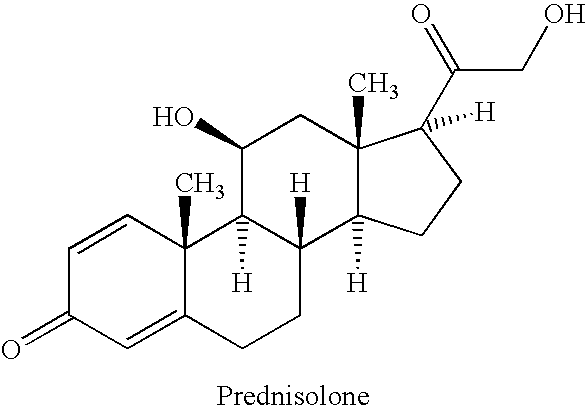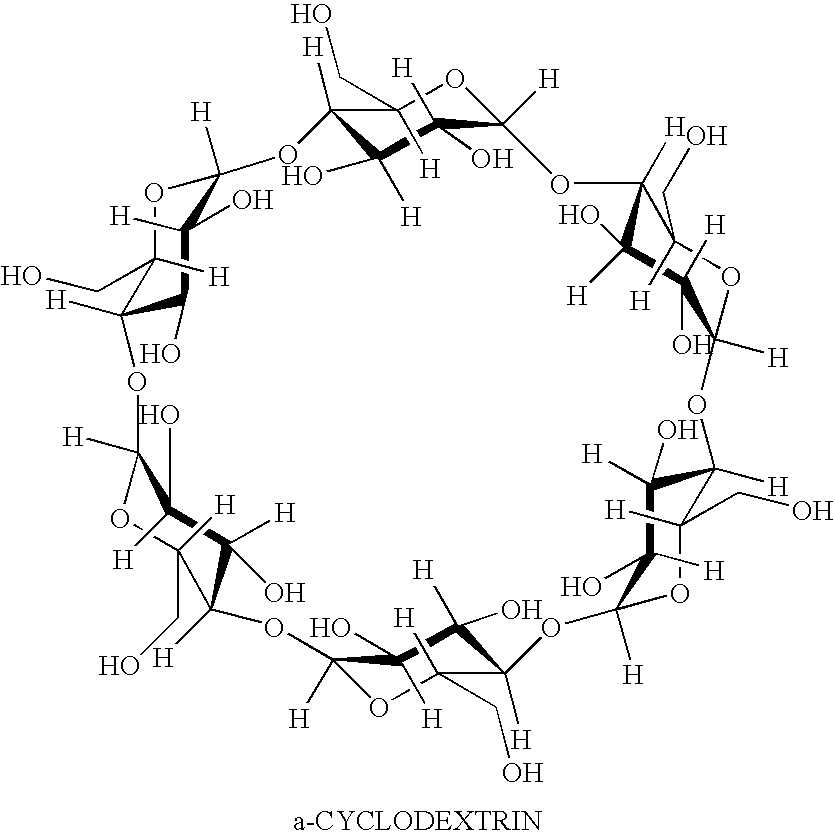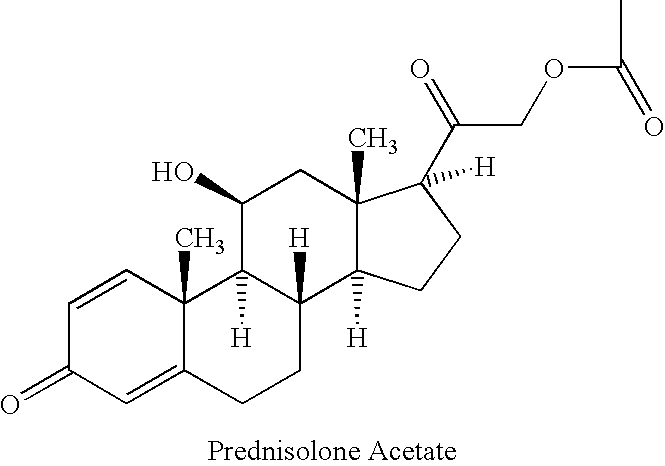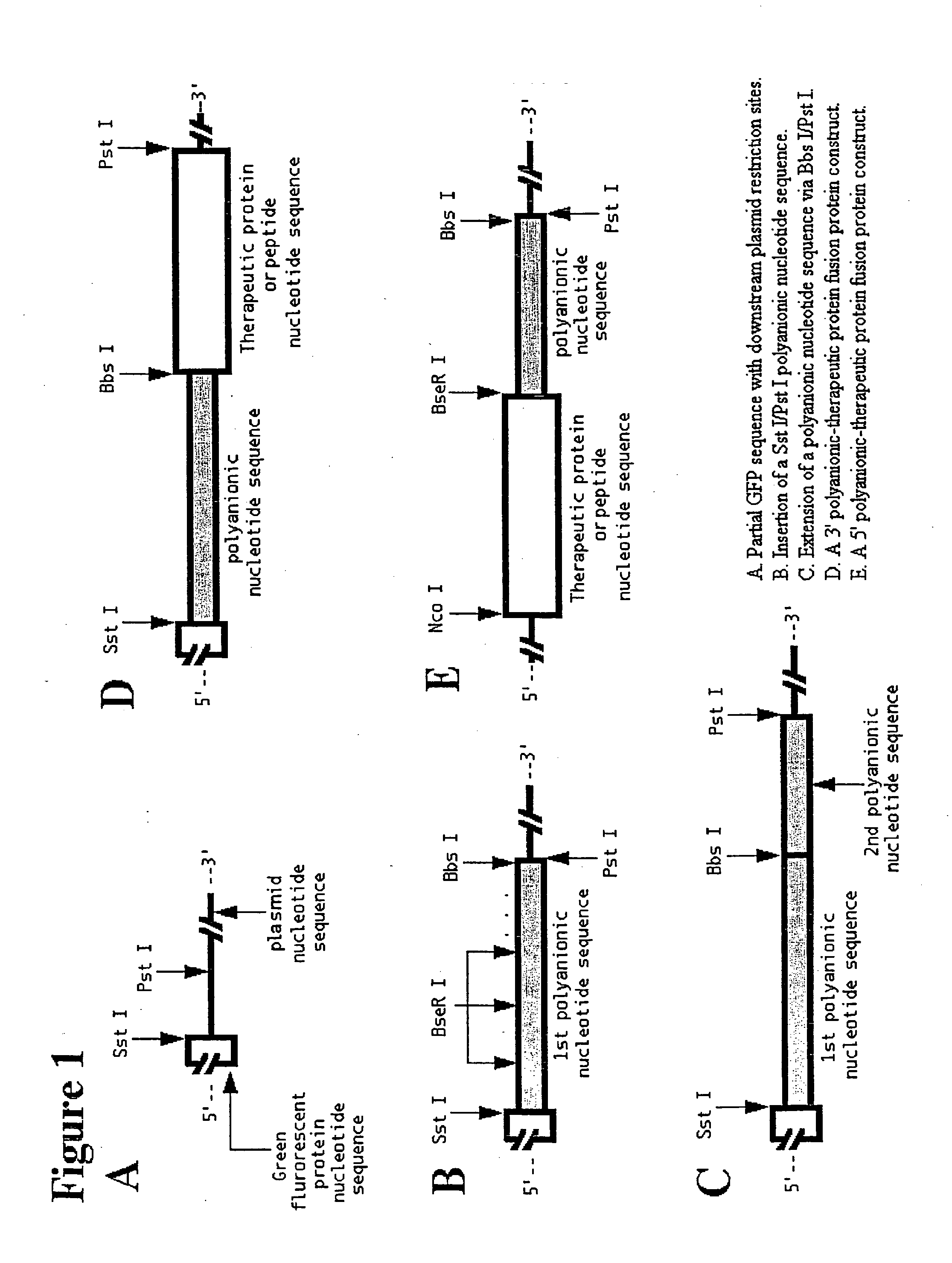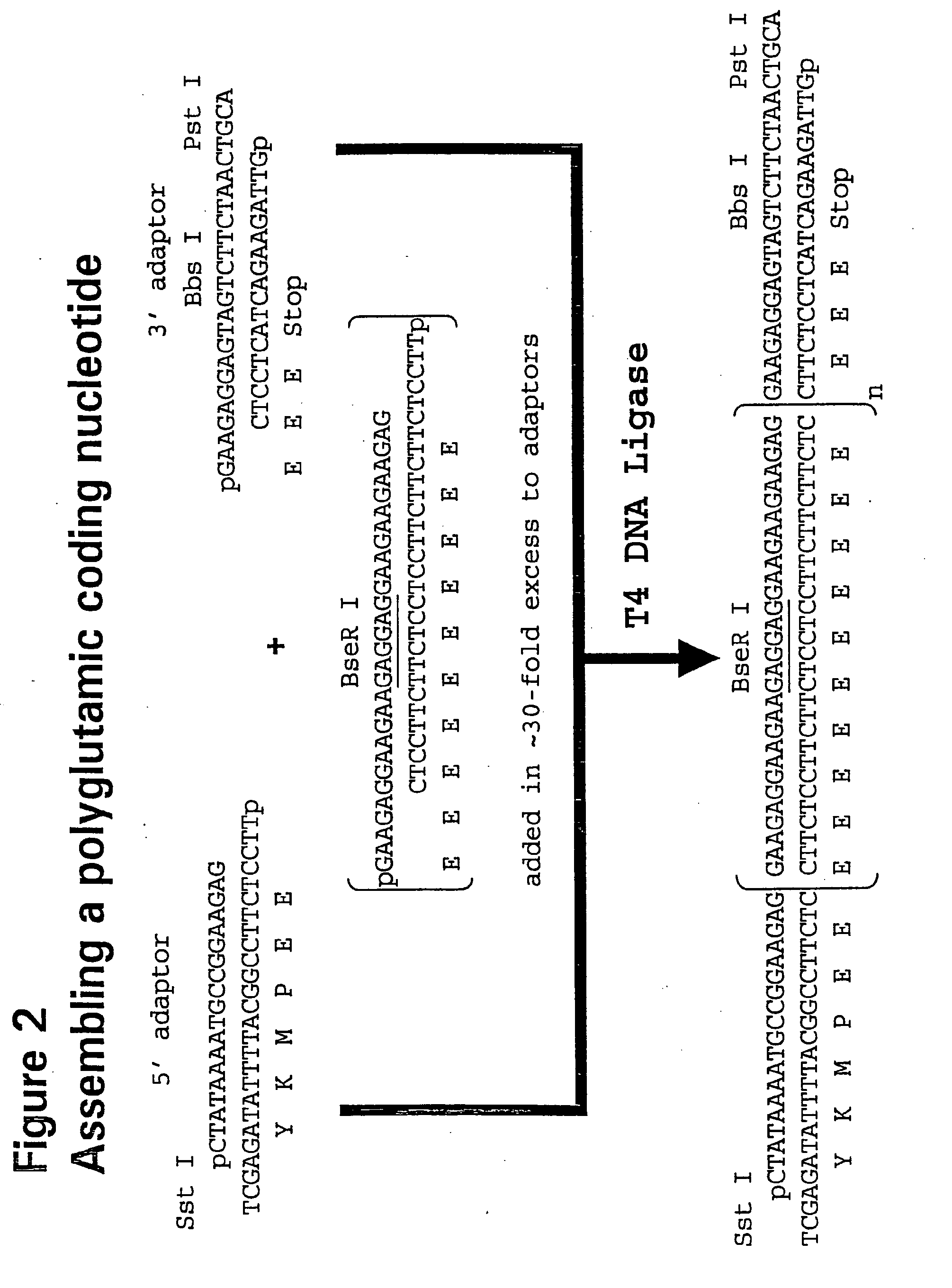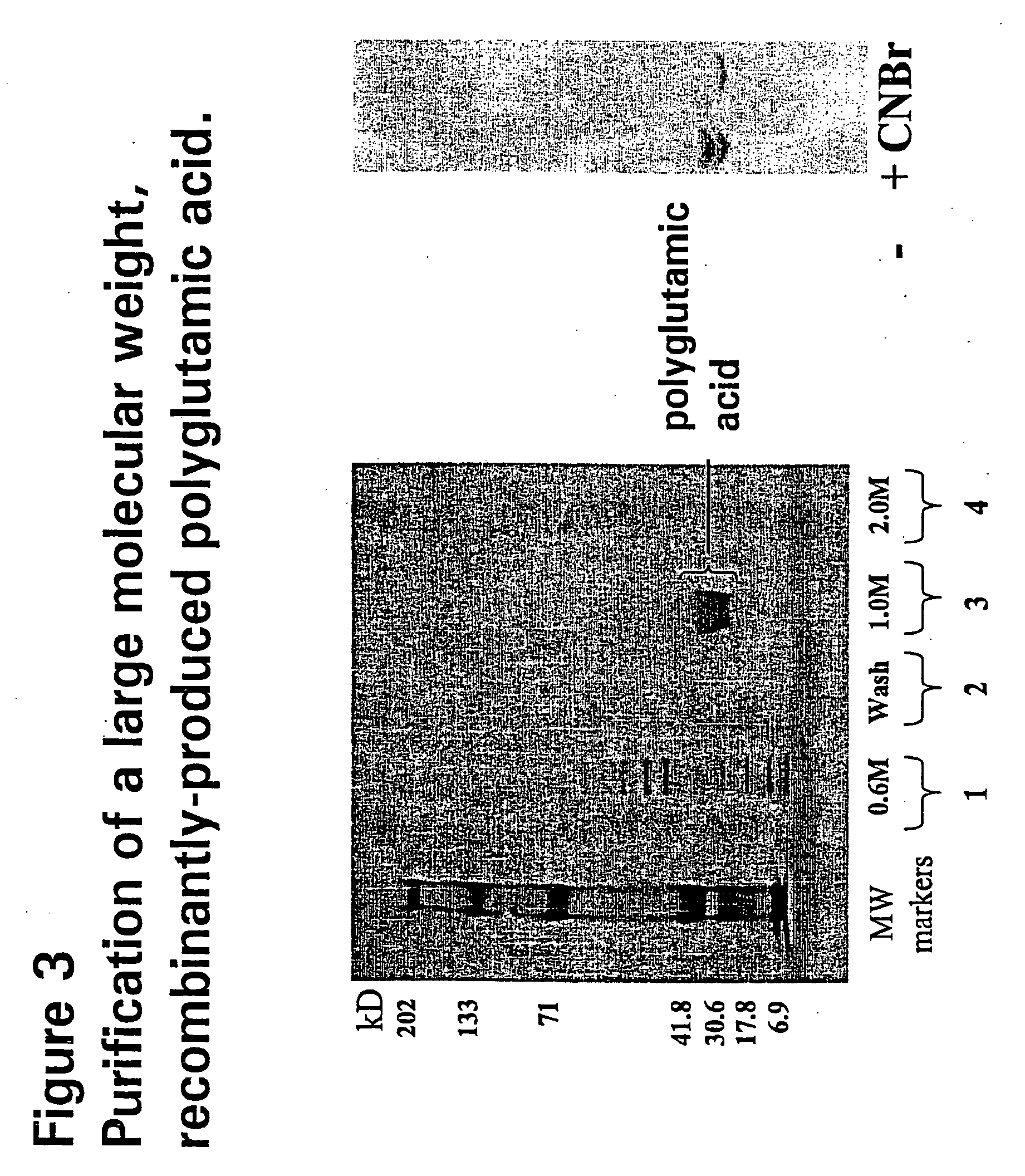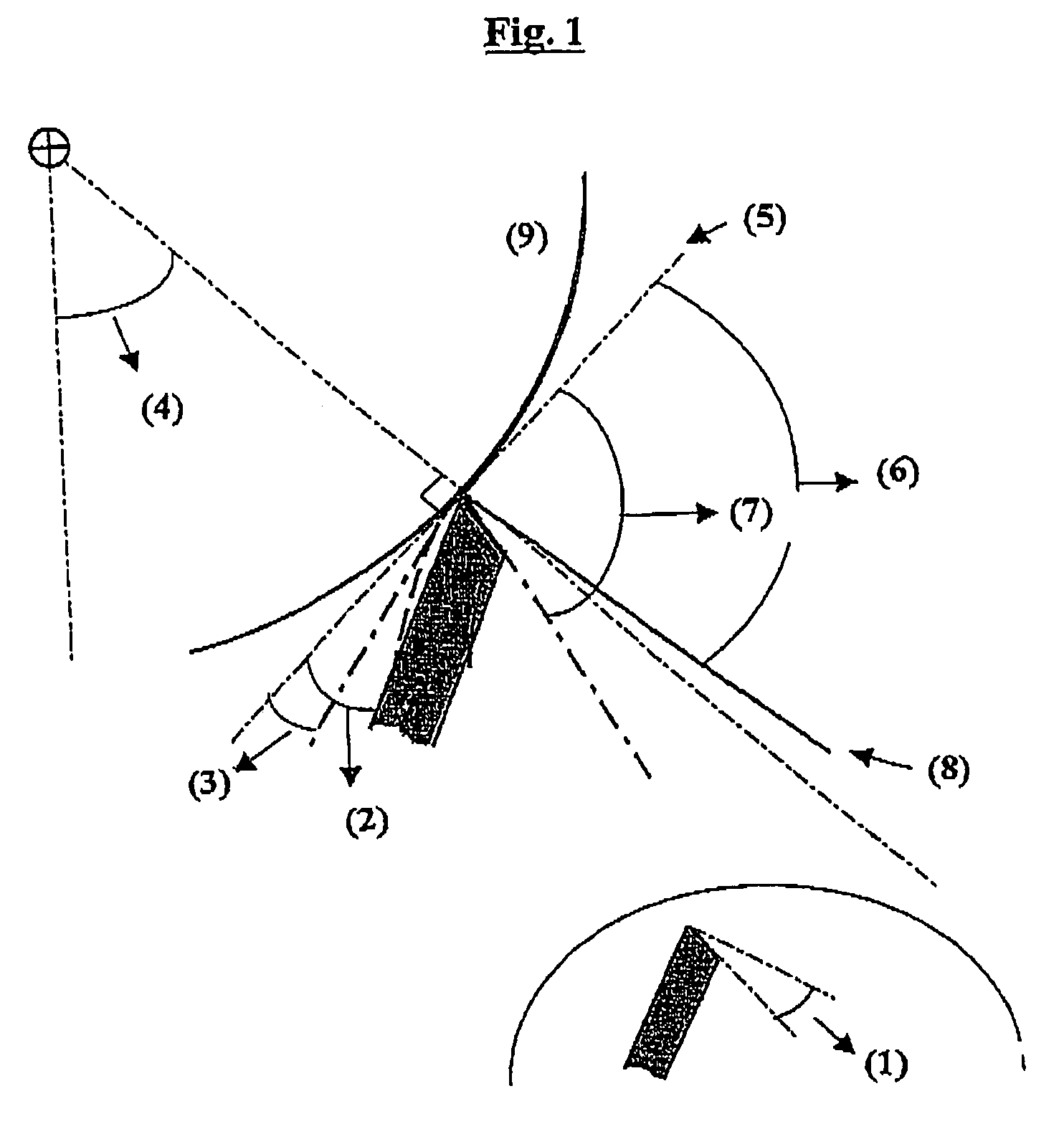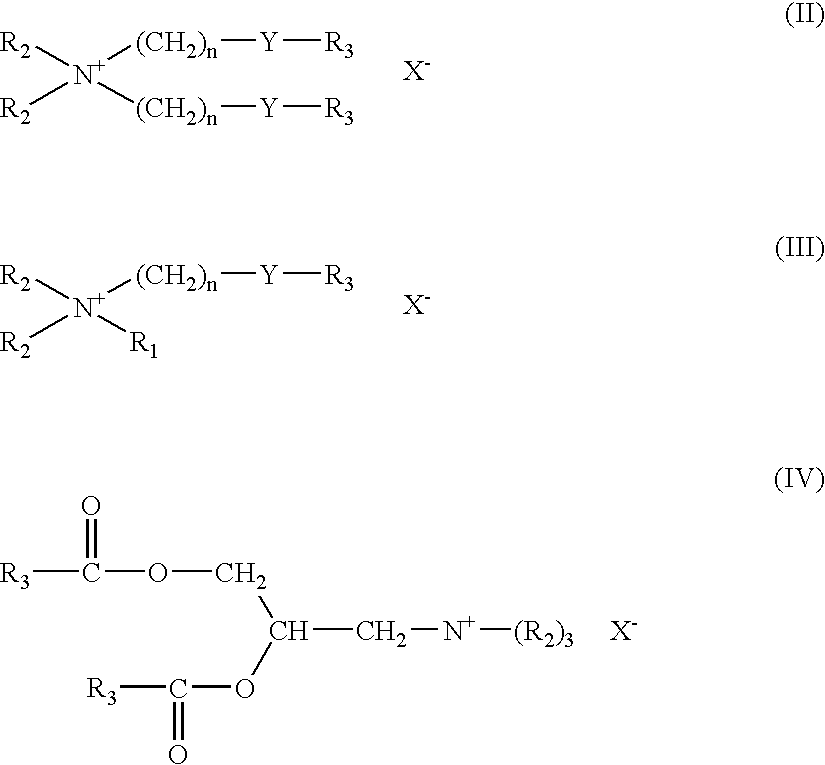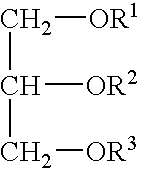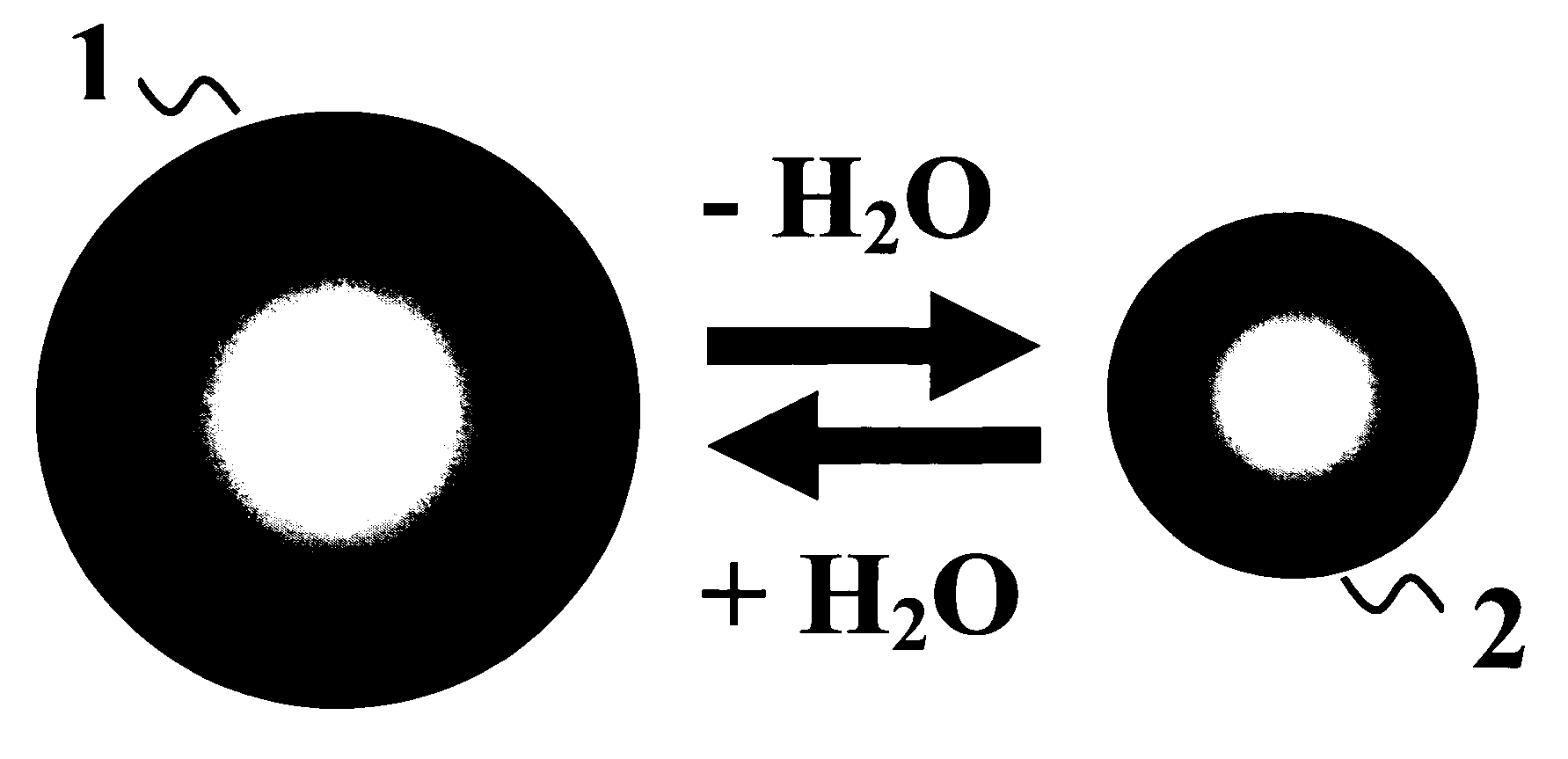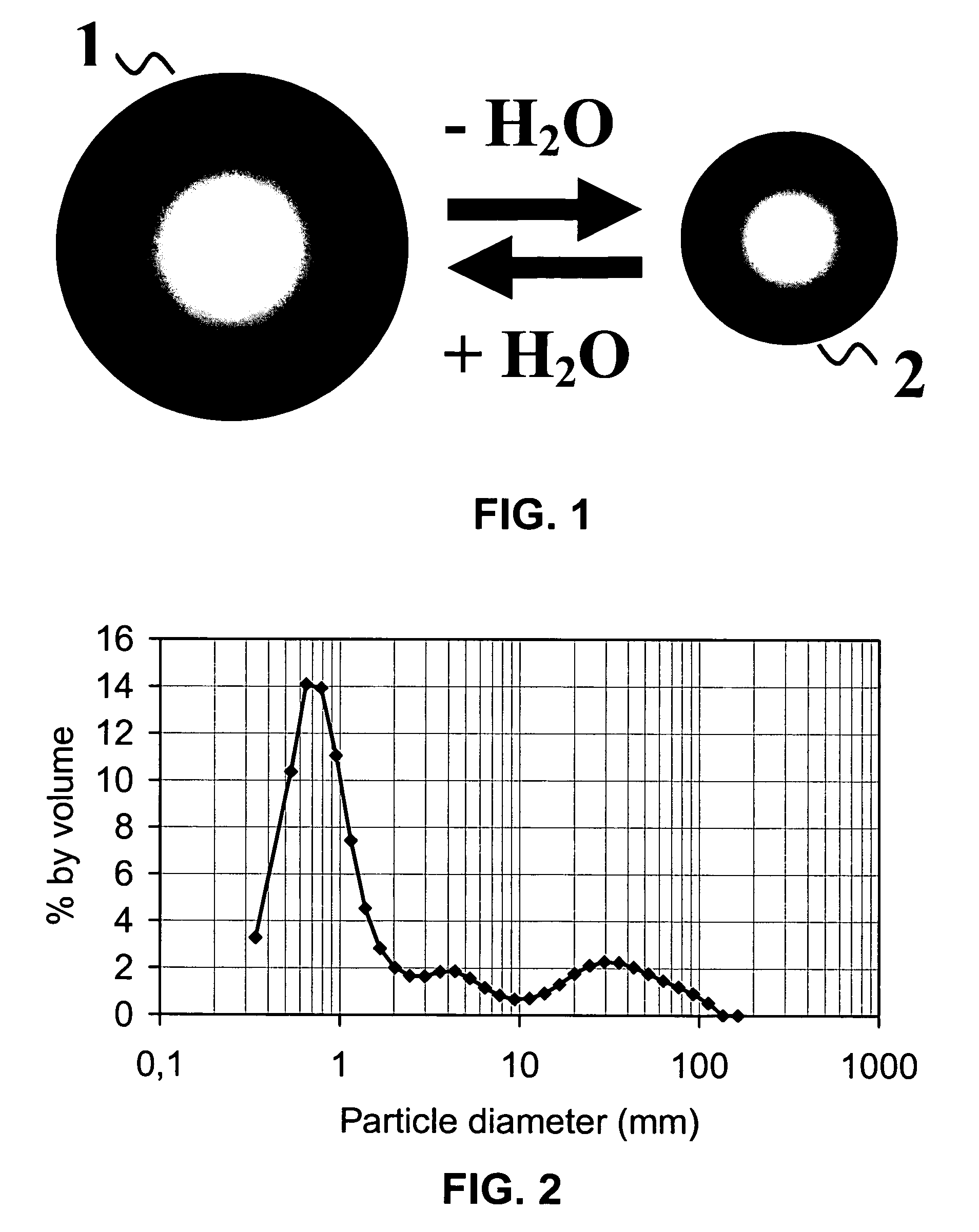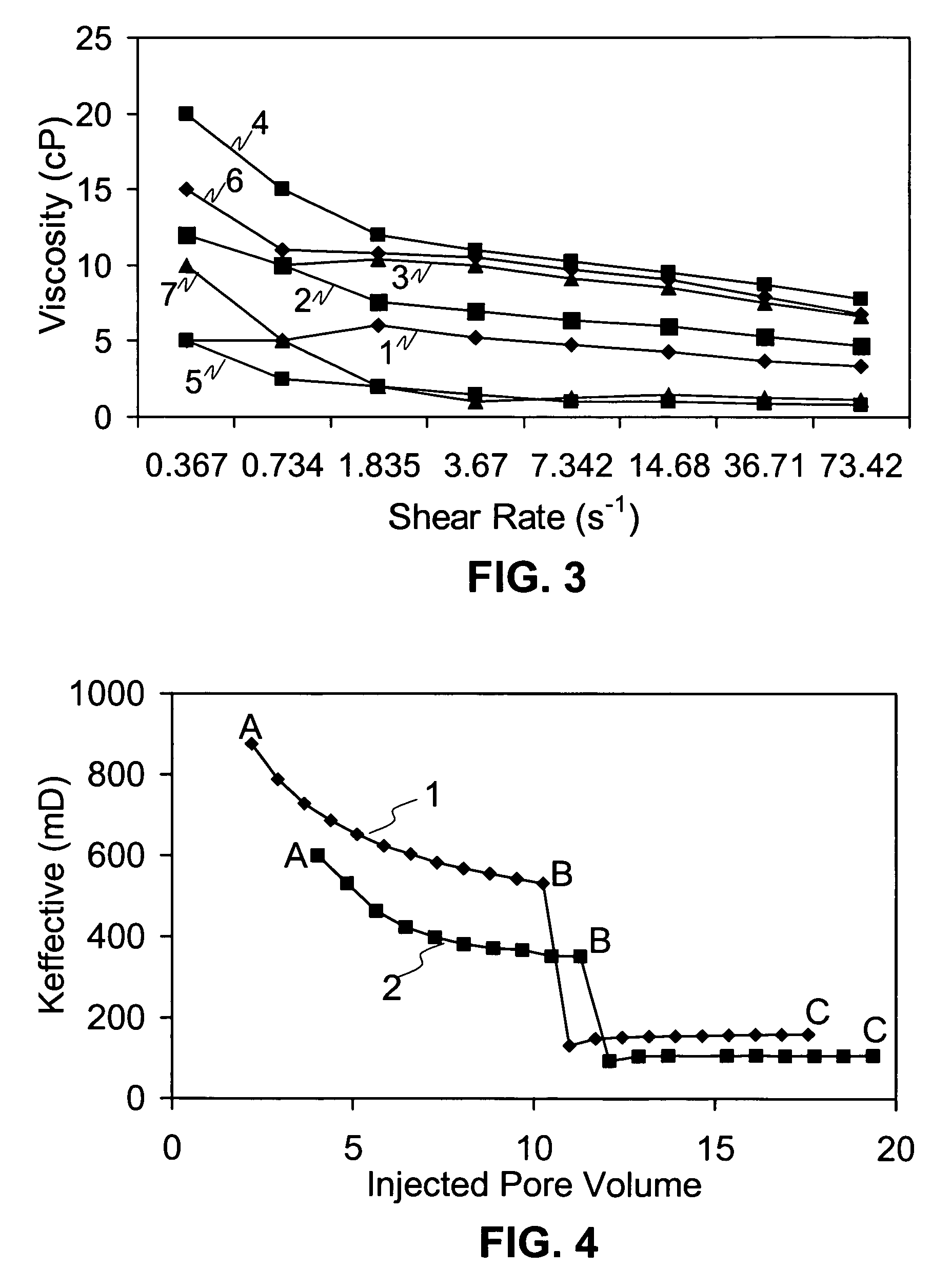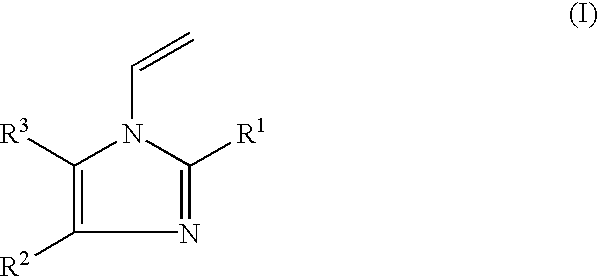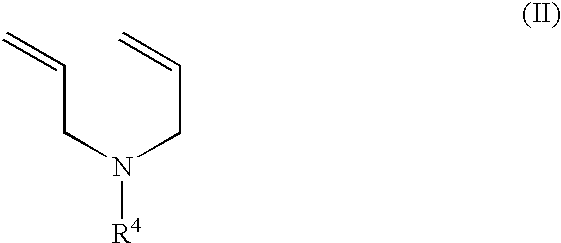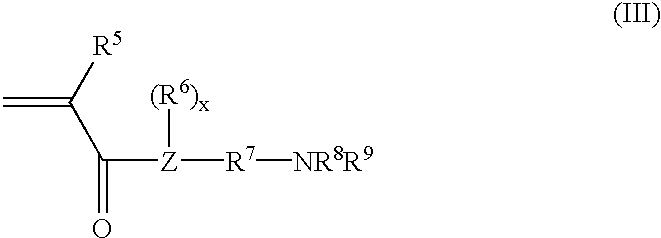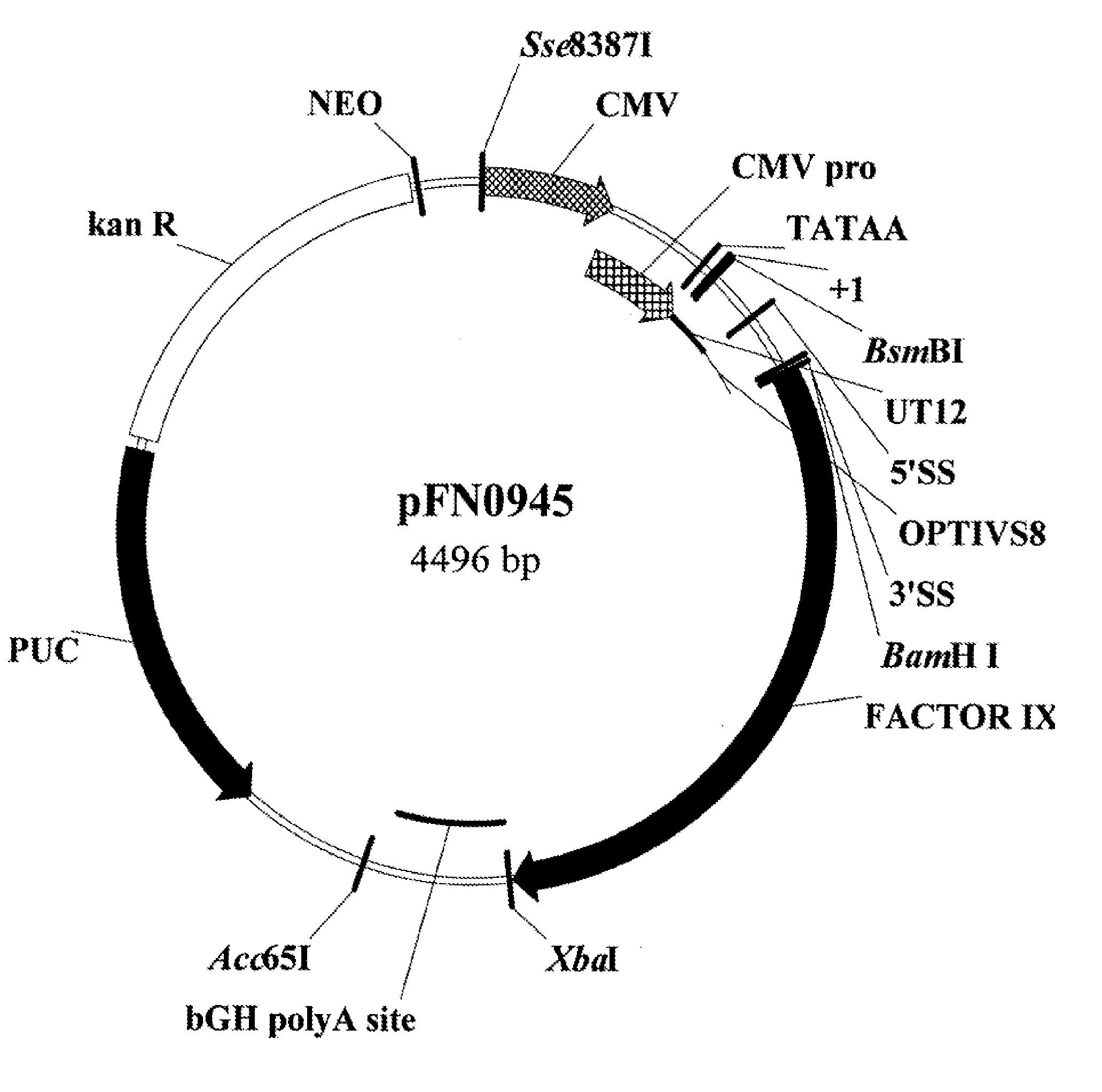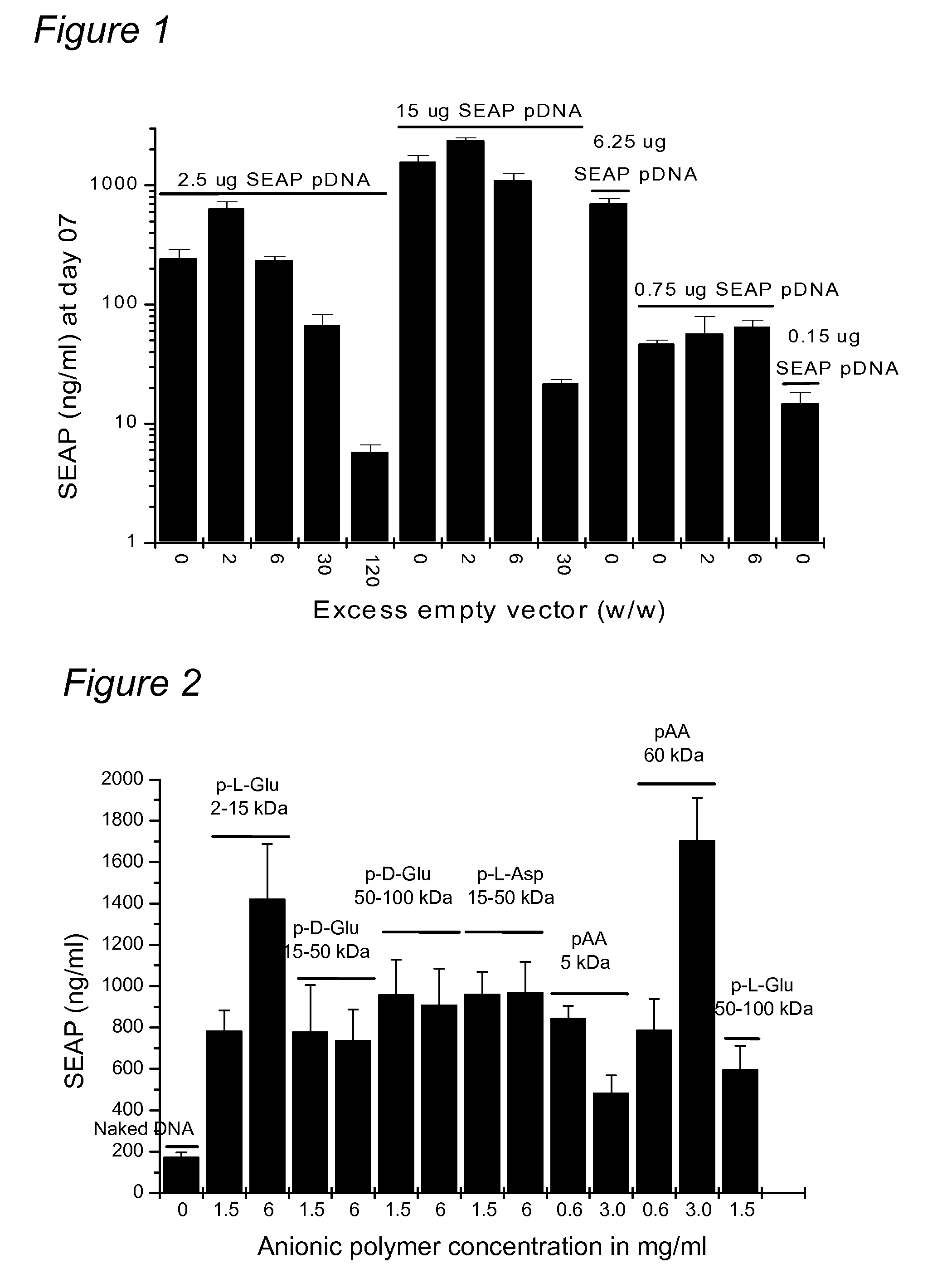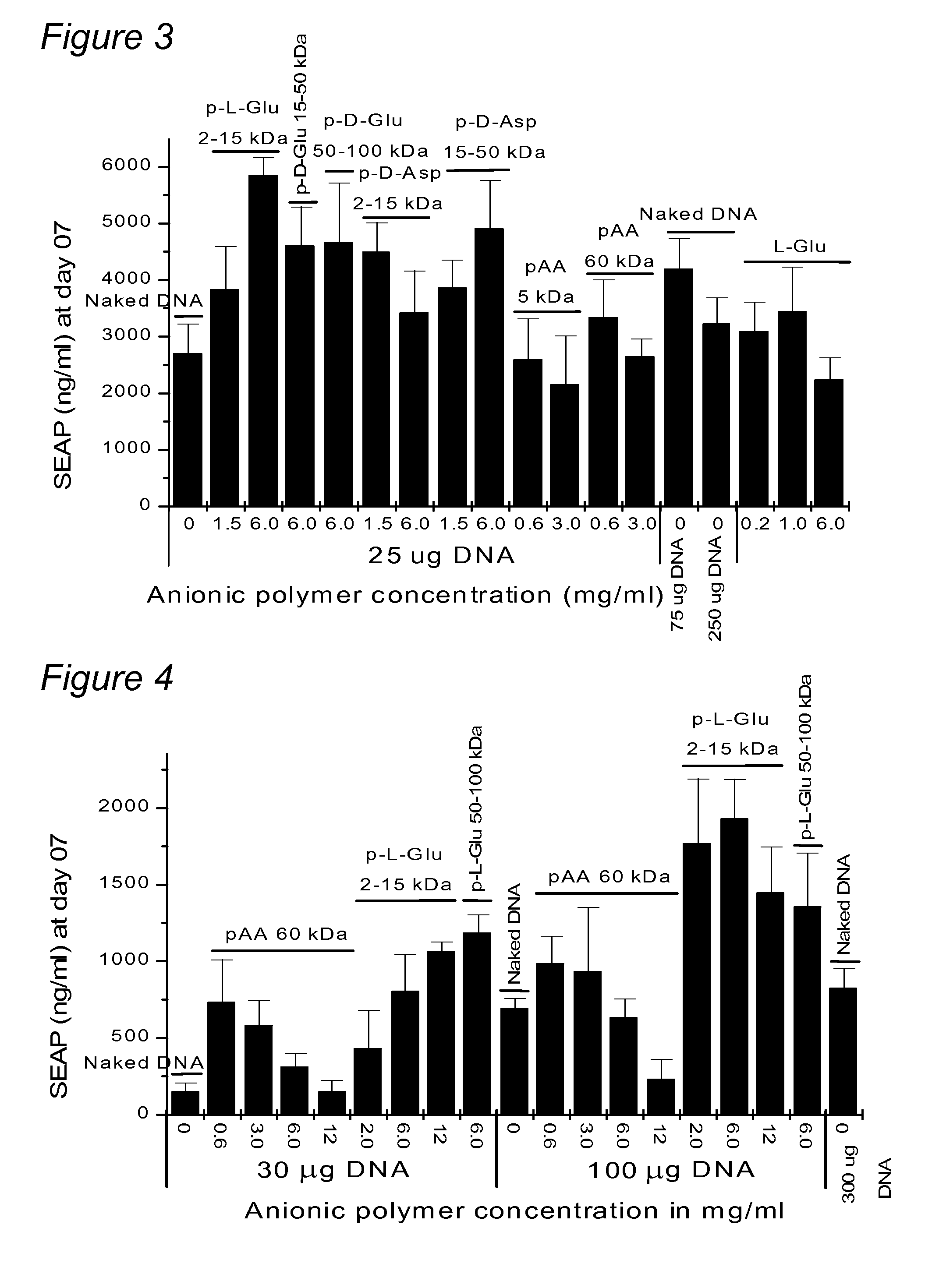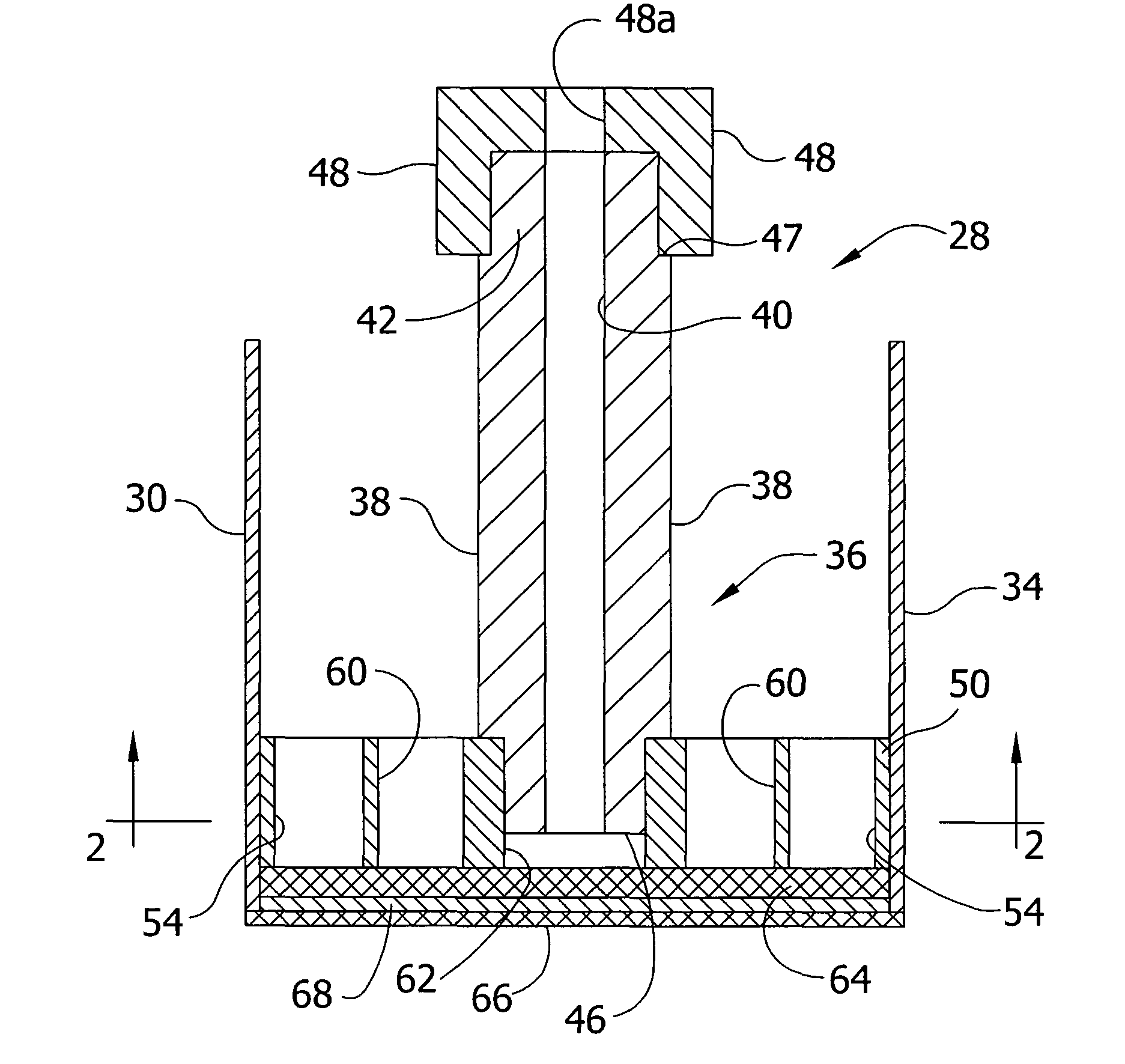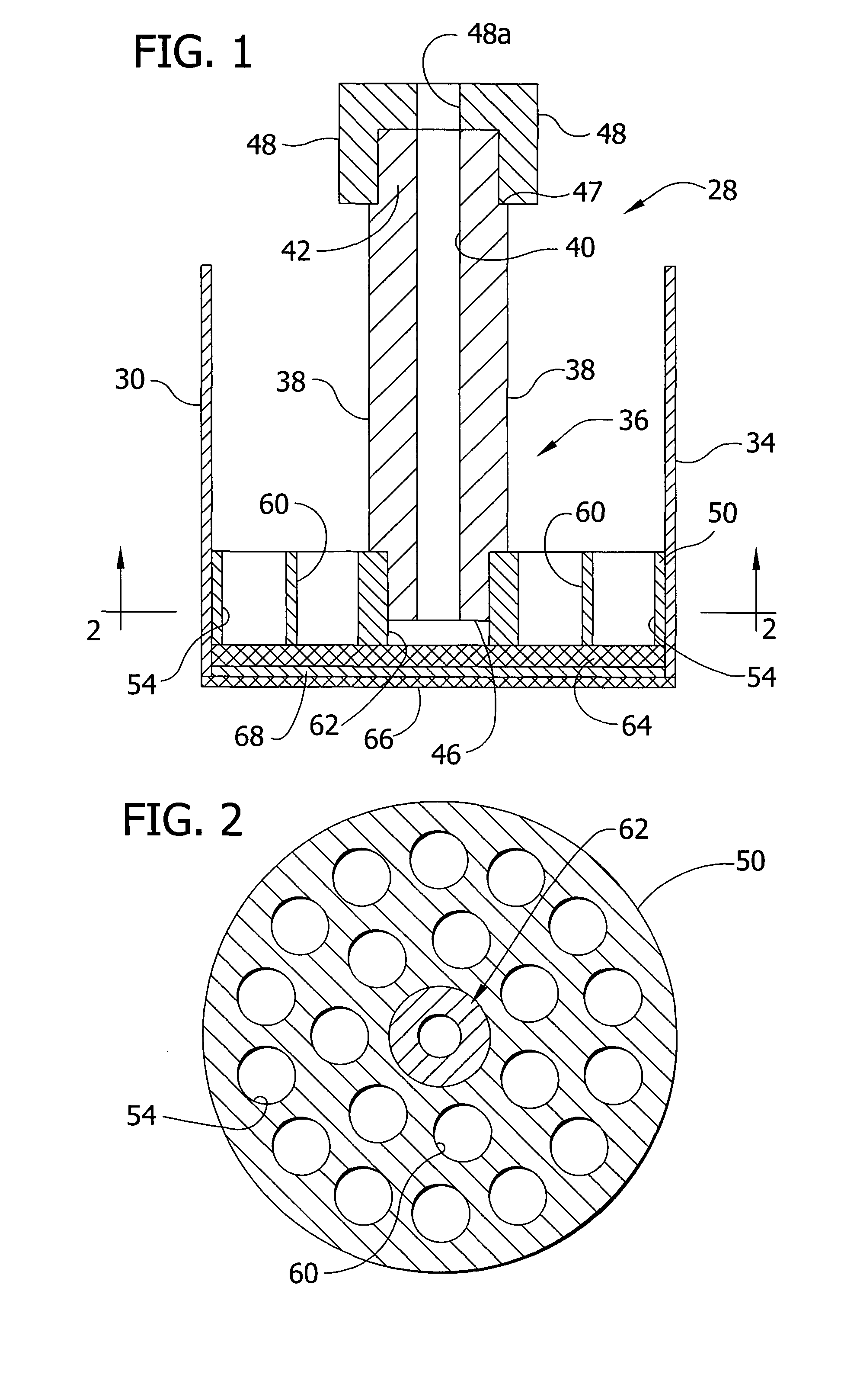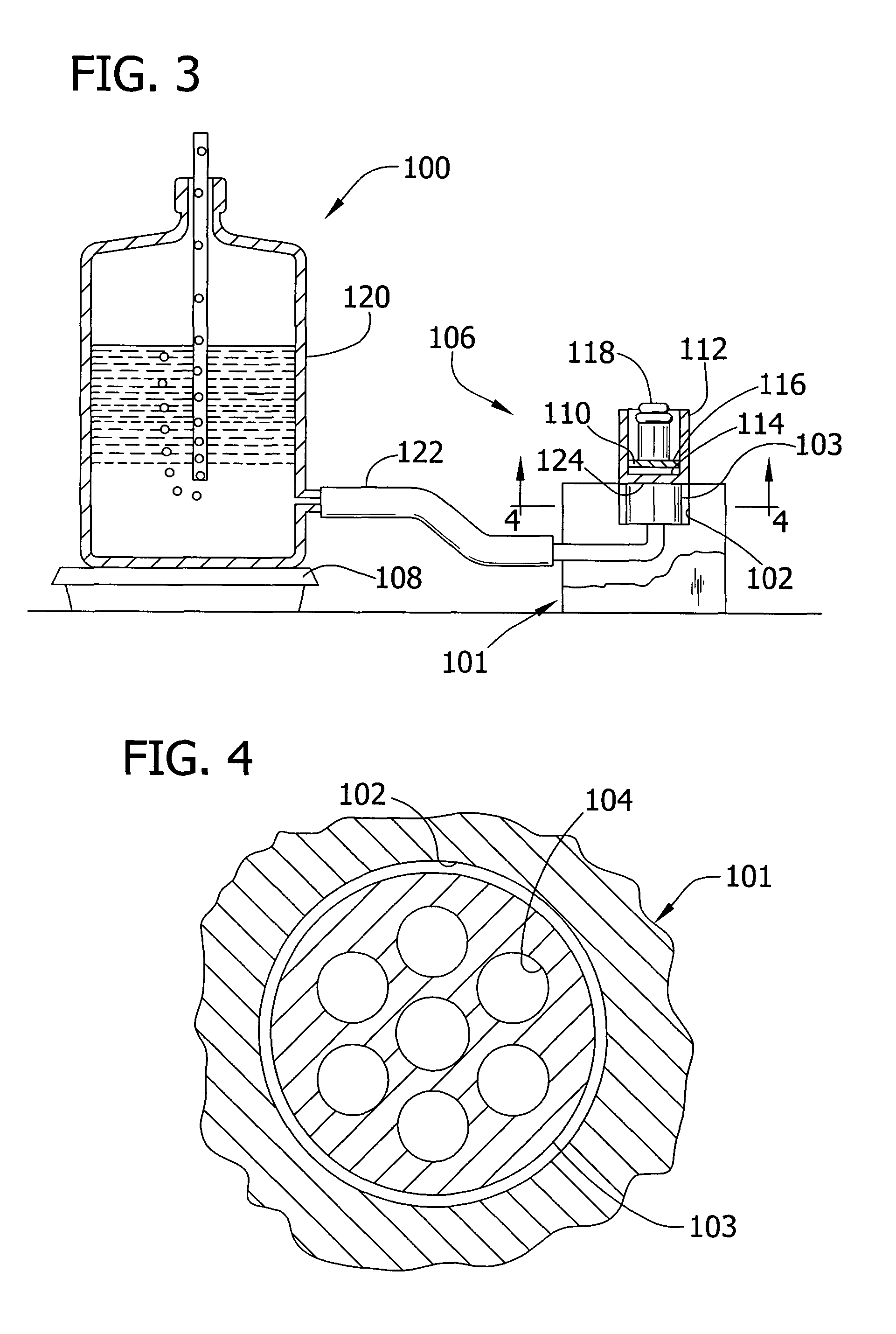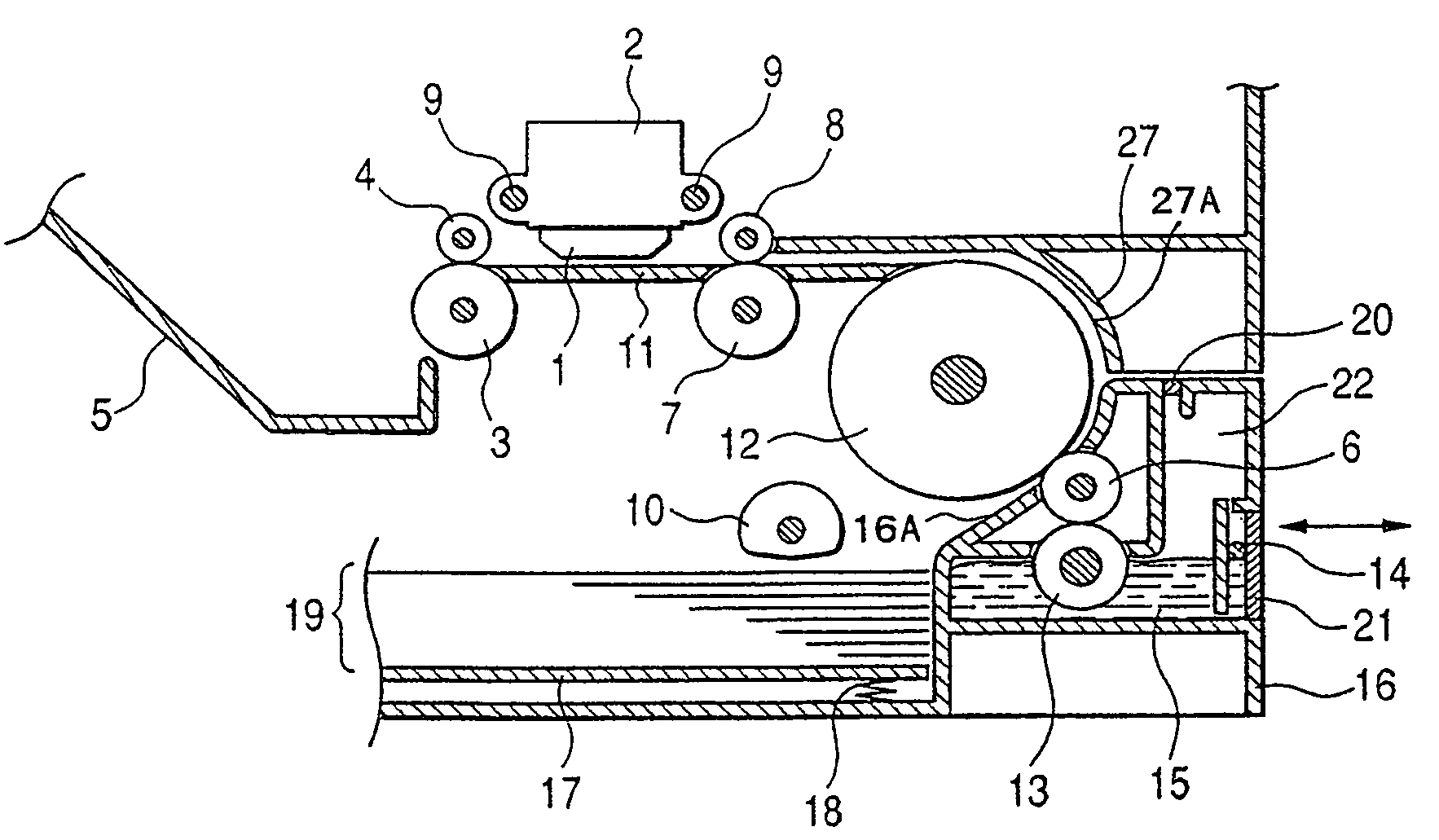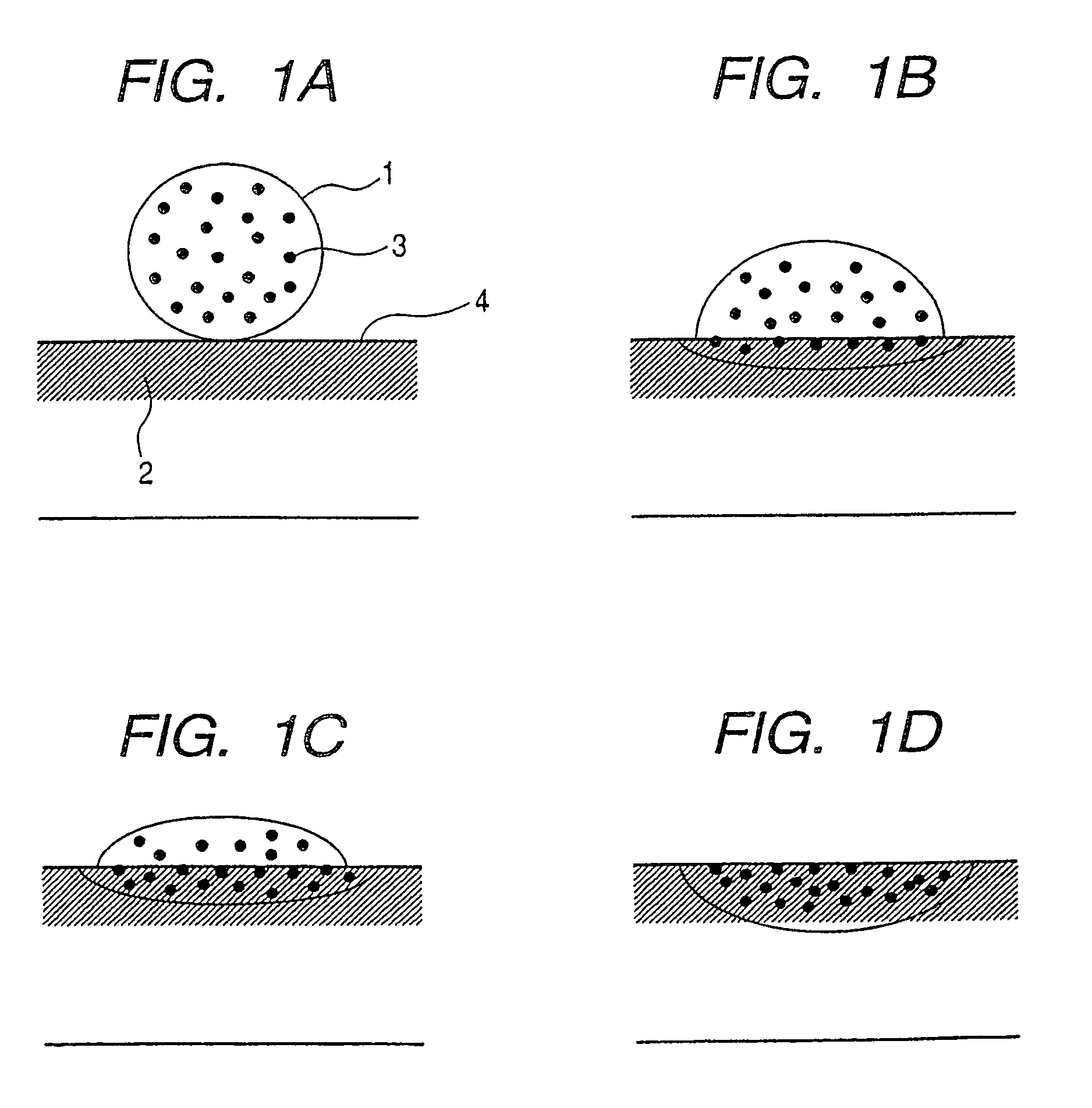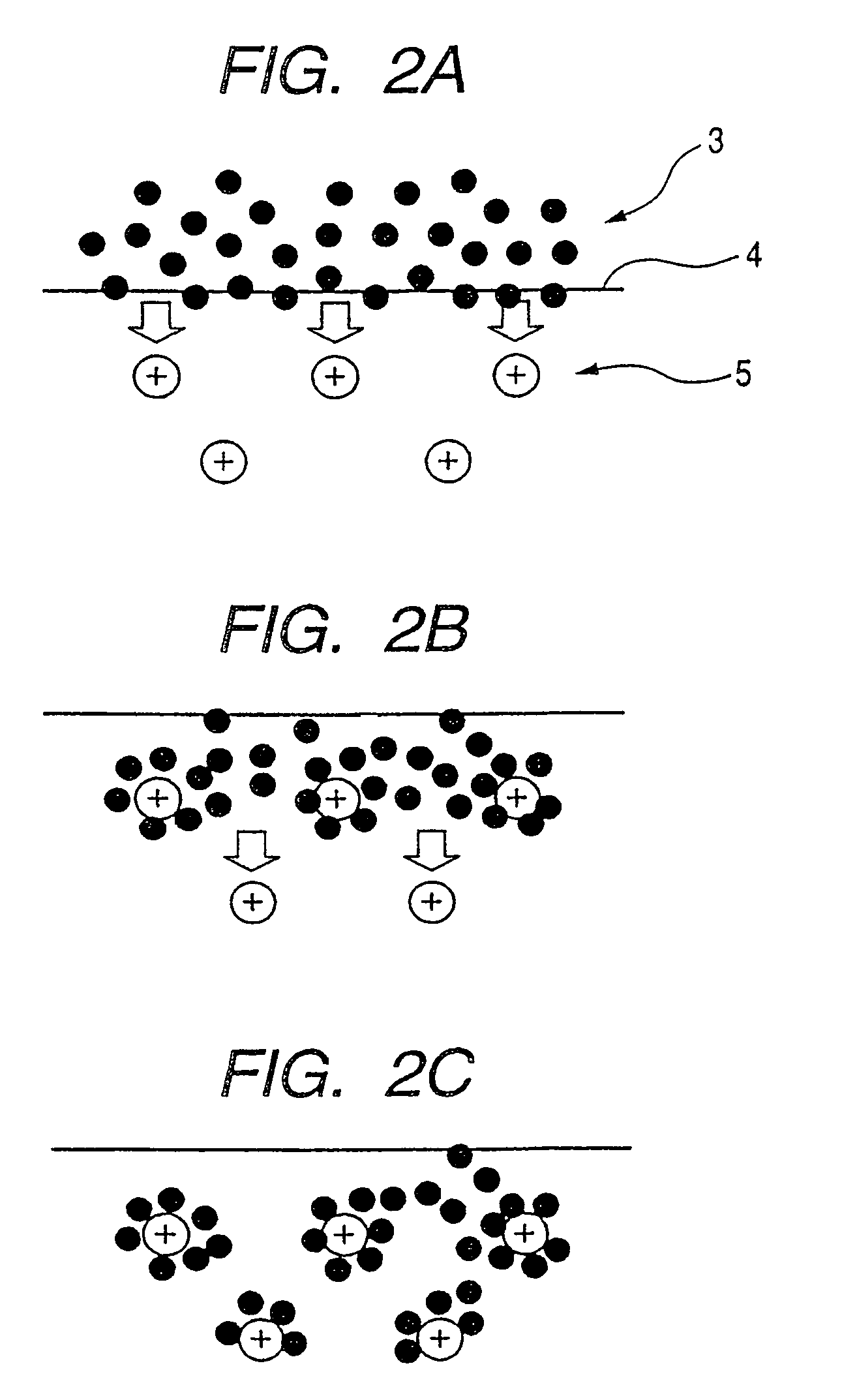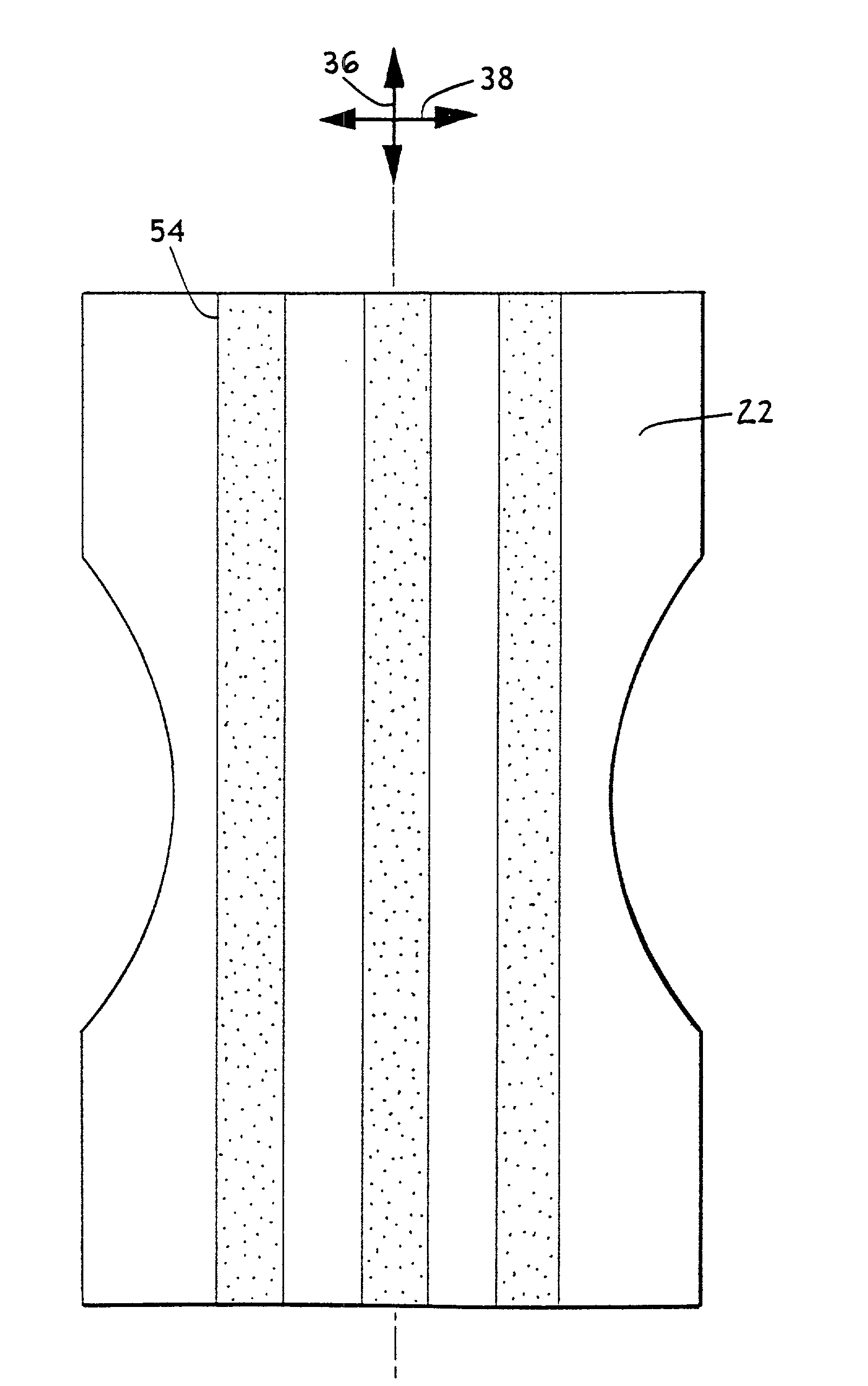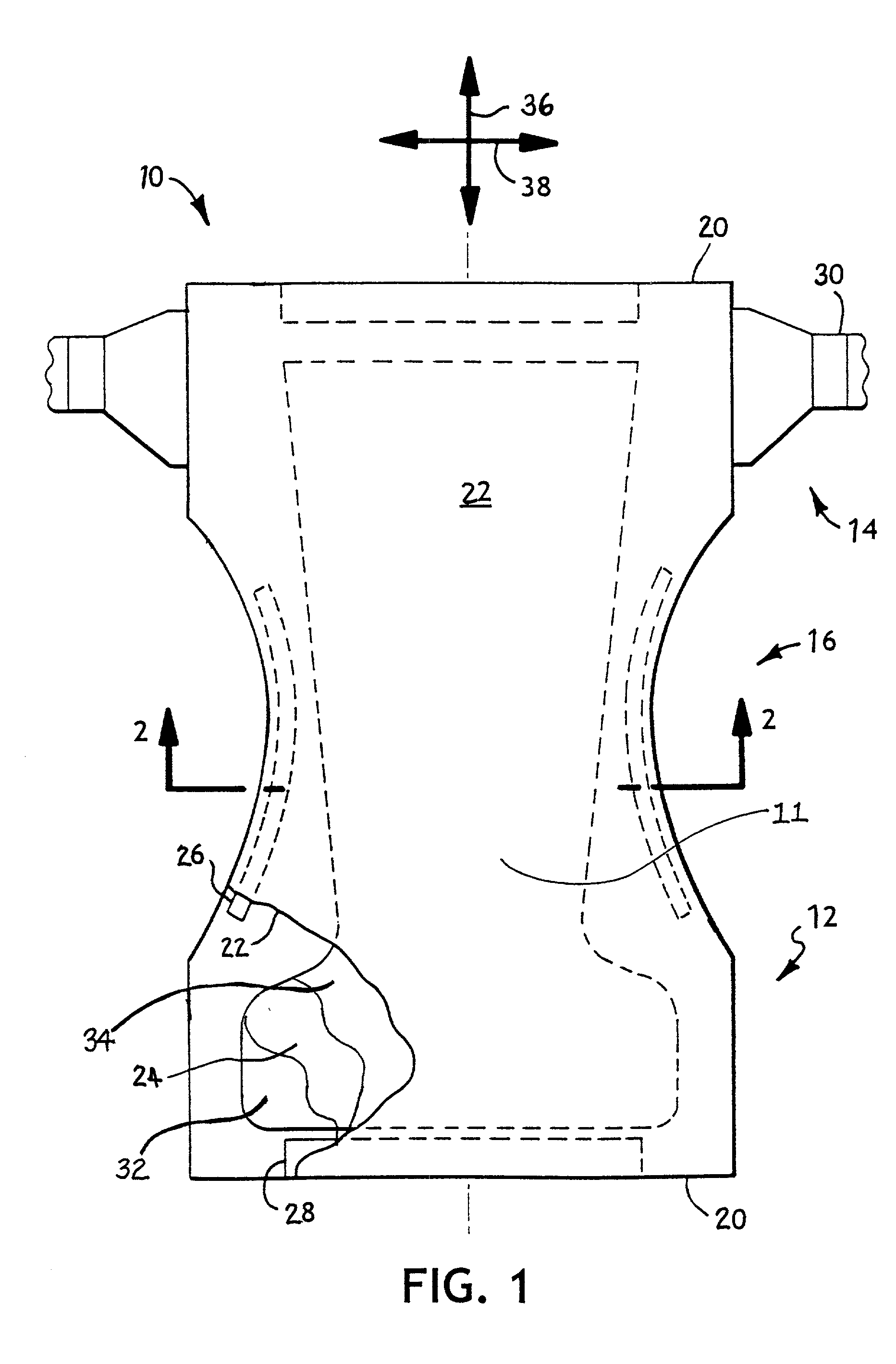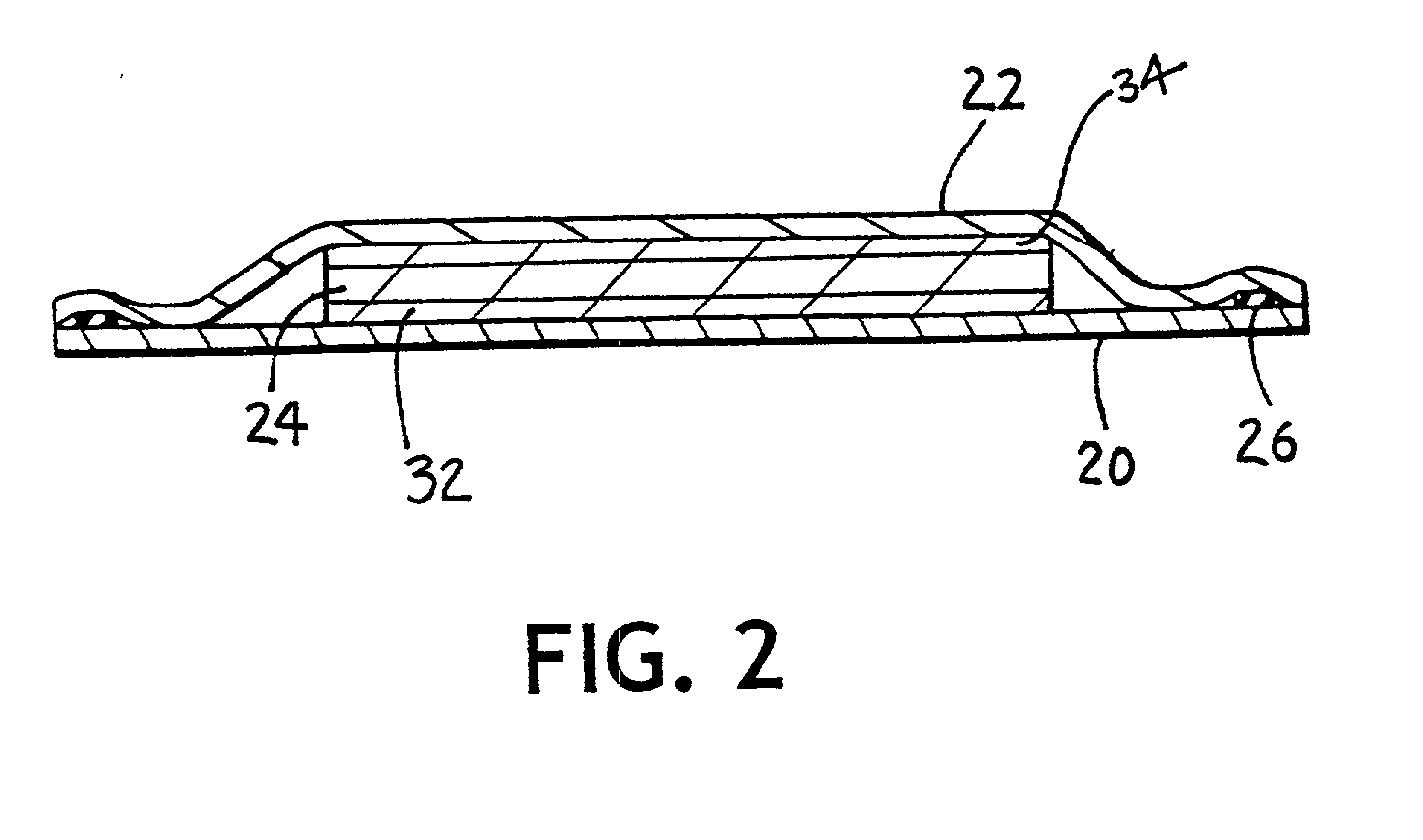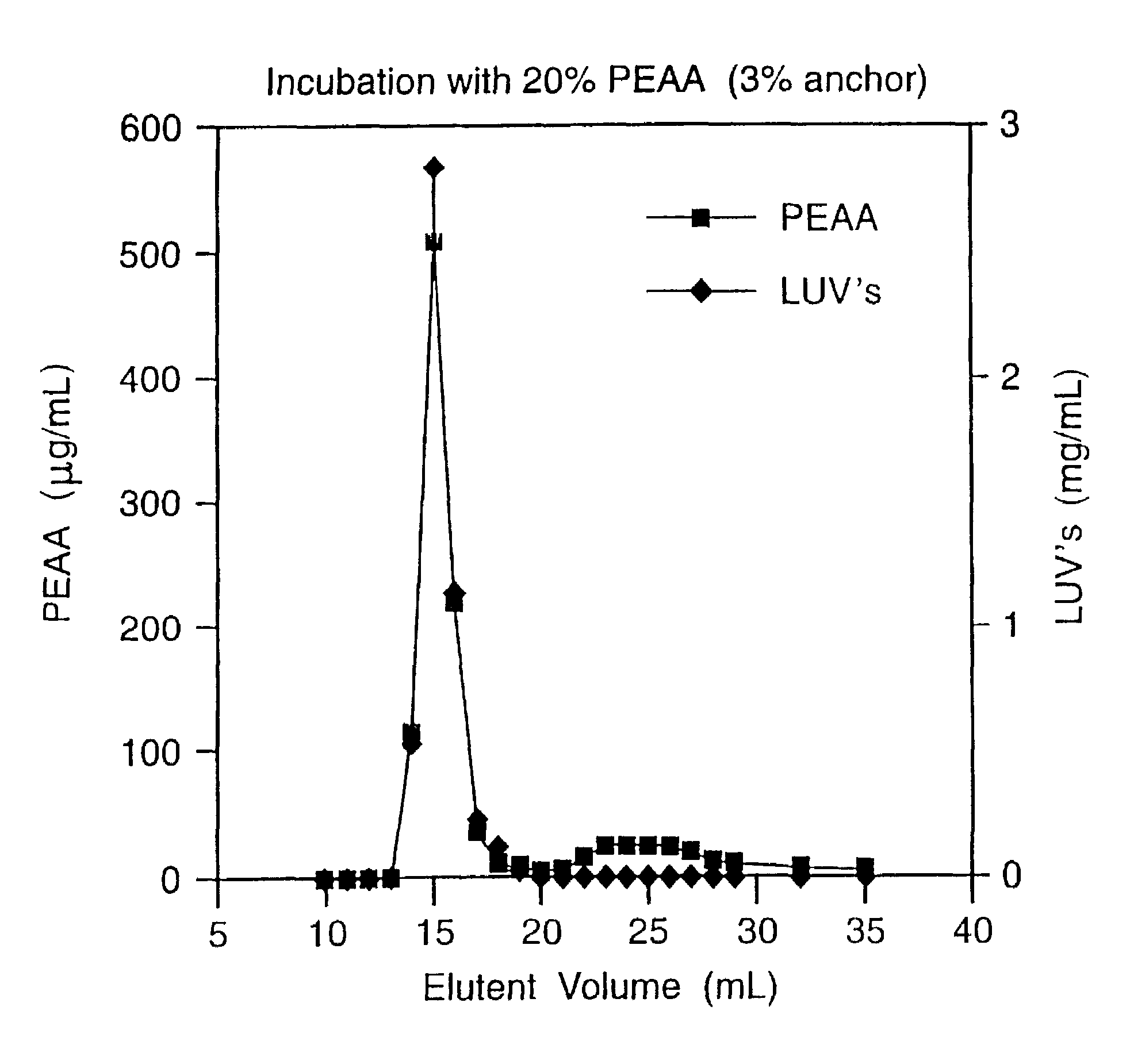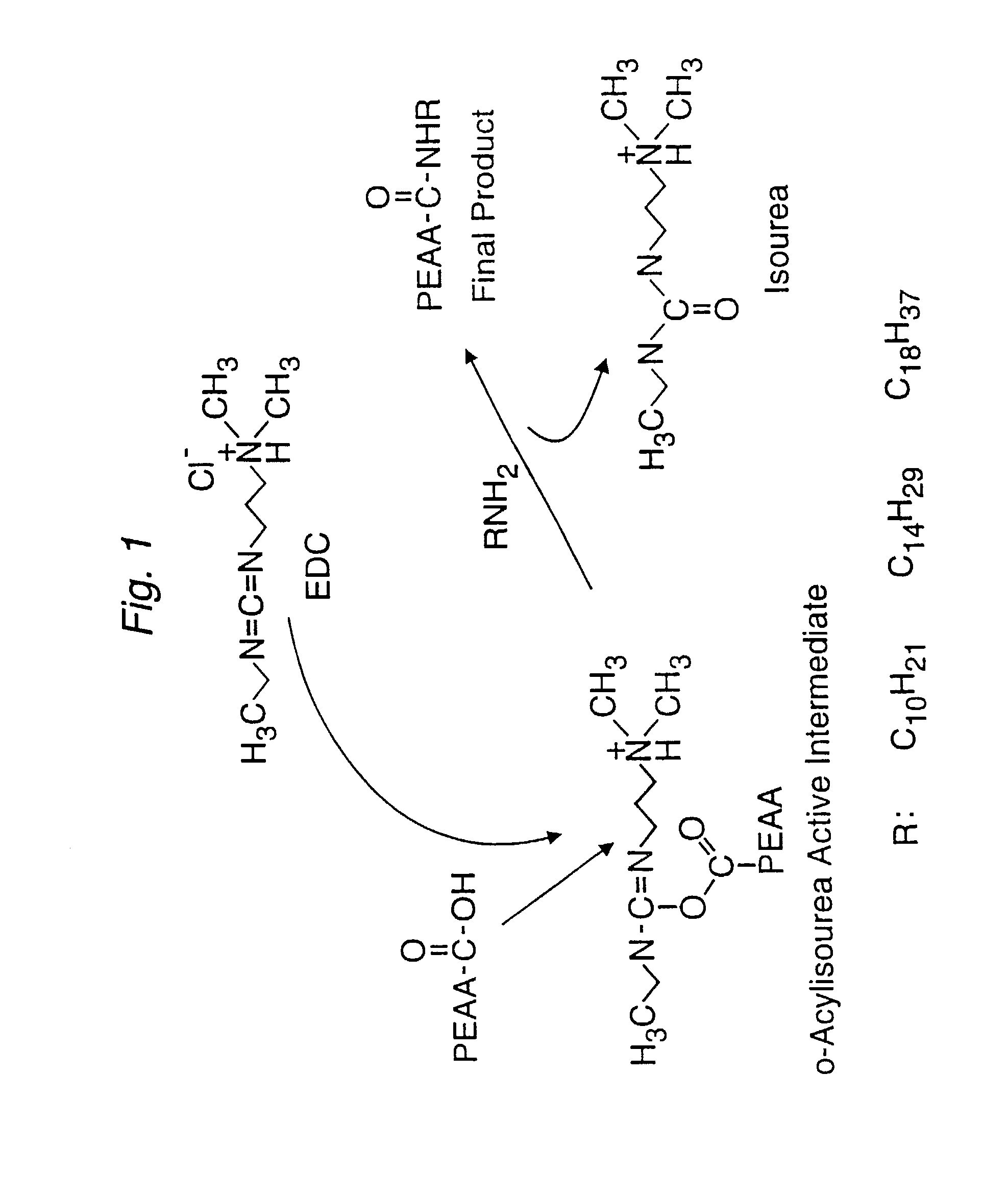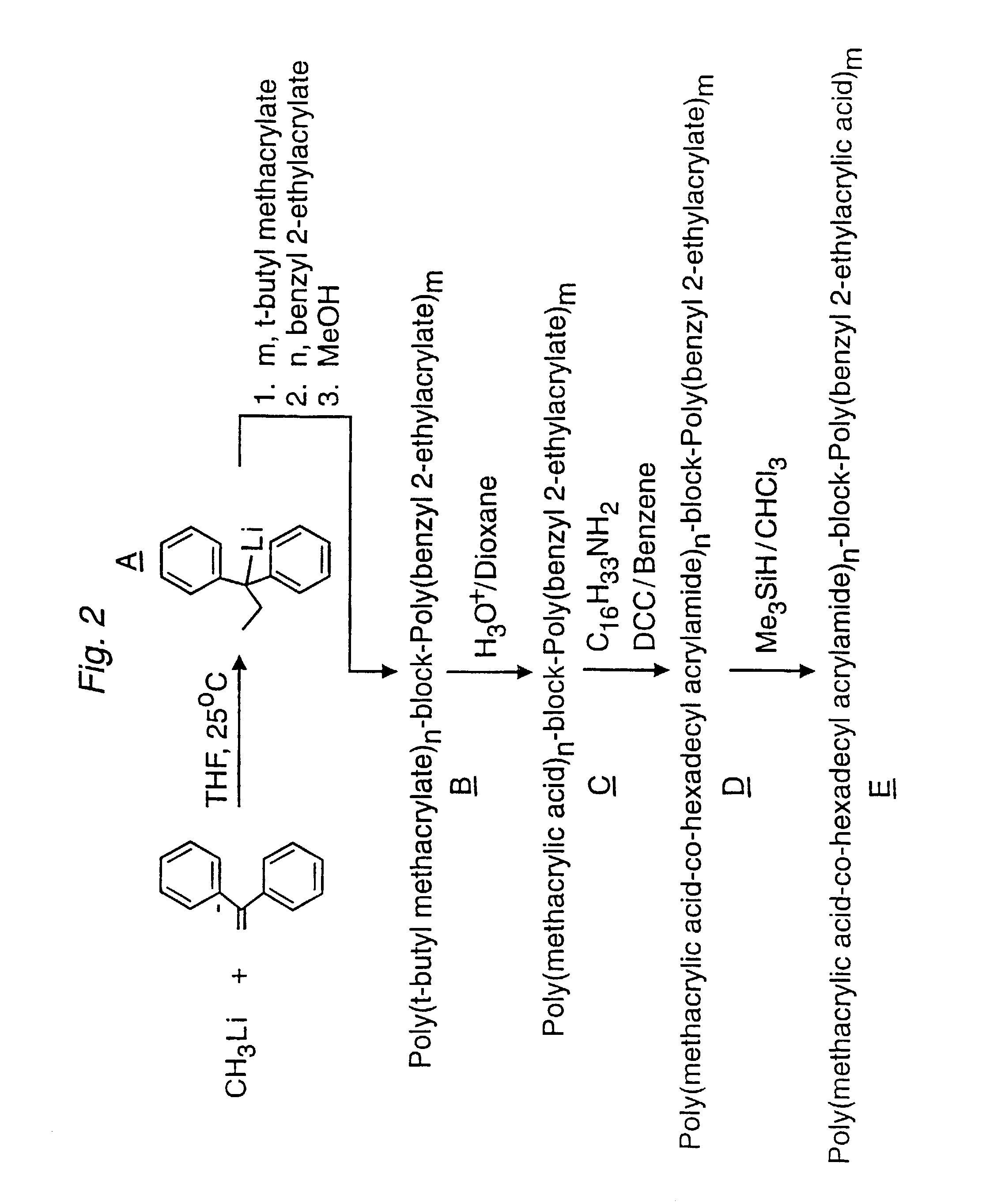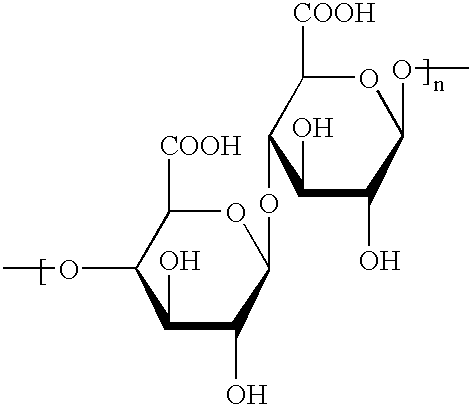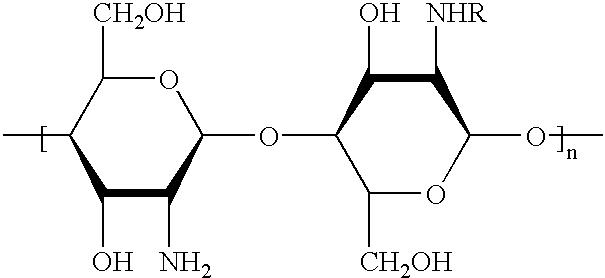Patents
Literature
917 results about "Anionic polymers" patented technology
Efficacy Topic
Property
Owner
Technical Advancement
Application Domain
Technology Topic
Technology Field Word
Patent Country/Region
Patent Type
Patent Status
Application Year
Inventor
An anionic polymer is a long chain of millions of carbon atoms on which negatively charged spots are attached along the chain.
Anti-reflection film and display device using the same
An anti-reflection film comprises a high refractive index layer having a refractive index of 1.65-2.40, and a low refractive index layer having a refractive index of 1.20-1.55. Another anti-reflection film comprises only a low refractive index layer having a refractive index of 1.20-1.55. In the invention, the first improvement resides in a high refractive index layer composed of inorganic fine particles having a mean particle size of 1-200 nm in an amount of 5-65 vol. % and a crosslinked anionic polymer in an amount of 35 to 95 vol. %. The second improvement resides in a low refractive index layer composed of inorganic fine particles having a mean particle size of 0.5-200 nm in an amount of 50-95 wt. % and a polymer in an amount of 5-50 wt. %, and two or more of those particles are piled up to form micro voidsby the adjacent particles.
Owner:FUJIFILM CORP
Capsules, materials for use therein and electrophoretic media and displays containing such capsules
An encapsulation material, intended for use in encapsulated electrophoretic displays, comprises the coacervation product of a polyanionic polymer having a vinyl main chain and a plurality of anionic groups bonded to the main chain, with a cationic or zwitterionic water-soluble polymer capable of forming an immiscible second phase on contact with the polyanionic polymer.
Owner:E INK CORPORATION
Capsules, materials for use therein and electrophoretic media and displays containing such capsules
InactiveUS20040012839A1Good water solubilityExpand the scope of useMicroballoon preparationNon-linear opticsElectrophoresisDisplay device
An encapsulation material, intended for use in encapsulated electrophoretic displays, comprises the coacervation product of a polyanionic polymer having a vinyl main chain and a plurality of anionic groups bonded to the main chain, with a cationic or zwitterionic water-soluble polymer capable of forming an immiscible second phase on contact with the polyanionic polymer.
Owner:E INK CORPORATION
Microcapsules and processes for making the same using various polymers and chitosans
InactiveUS6733790B1Improve stabilityReduce partial pressurePowder deliveryBiocideAnionic polymersAlginic acid
A microcapsule having a mean diameter of from about 0.1 to about 5 mm, a membrane and a matrix containing at least one active principle wherein the microcapsule is the product of the process comprising the steps of (a) forming an aqueous matrix by heating an aqueous solution comprised of a gel former, an anionic polymer selected from the group consisting of a salt of alginic acid and an anionic chitosan derivative and active principle; (b) adding the aqueous matrix to an aqueous solution of chitosan.
Owner:COGNIS IP MANAGEMENT GMBH
Blends of temperature sensitive and anionic polymers for drug delivery
ActiveUS20060280797A1Faster rate of gellingDecrease gelling temperaturePowder deliveryOrganic active ingredientsRoom temperatureAnionic polymers
A physical blend of inverse thermal gelling and shear-thinning, thixotropic polymers that has a lower gelation temperature than the thermal gelling polymer alone is provided. The blend results in an injectable hydrogel that does not flow freely at room temperature, but is injectable due to its shear-thinning properties. The thermal-gelling properties of the polymer promote a more mechanically stable gel at body temperature than at room temperature. The polymer matrix gel has inherent therapeutic benefit and can also be used as a drug delivery vehicle for localized release of therapeutic agents.
Owner:SHOICHET MOLLY S +2
Aqueous liquid laundry detergent compositions with visible beads
InactiveUS7169741B2Inorganic/elemental detergent compounding agentsOrganic detergent compounding agentsLiquid coreSemipermeable membrane
Disclosed are aqueous liquid laundry detergent compositions which are in the form of an externally structured aqueous liquid matrix having dispersed therein a plurality of visibly distinct beads. Such beads are prepared so as to be in the form of a liquid core surrounded by a semi-permeable membrane formed by interaction of a cationic polymeric material with an anionic polymeric material. Such beads are stable in the aqueous liquid detergent compositions herein yet disintegrate substantially upon their introduction via the composition into agitated dilute aqueous laundering liquors.
Owner:THE PROCTER & GAMBLE COMPANY
Method for forming inorganic coatings
The present invention is directed to a method for forming an inorganic coating on a protein template. The method comprises contacting the template with an anionic polymer interface followed by an inorganic material for a sufficient period of time to allow mineralization of the inorganic material thus forming an inorganic coating on the template. Preferably, the coating is aligned.
Owner:TRUSTEES OF TUFTS COLLEGE
Soft and strong webs from highly refined cellulosic fibres
InactiveUS20040144510A1Fully softenedNatural cellulose pulp/paperSpecial paperPolymer scienceWater soluble
Soft and strong cellulose-based fibrous web, comprises a) cellulosic fibres having a freeness value of more than 26° SR measured according to DIN-ISO 5267 / 1 (March 1999), b) a water-soluble cationic polymer, c) a water-soluble anionic polymer, and d) a cationic surfactant-based softener. The webs are prepared by refining cellulosic fibres to a degree of freeness of more than 26° SR measured according to DIN-ISO 5267 / 1, adding at least one water-soluble anionic polymer and water-soluble cationic polymer to the refined cellulosic fibres, adding a cationic surfactant-based softener to the cellulosic fibres obtained thereby, and wet-laying and dewatering the celulosic fibres obtained thereby.
Owner:SCA HYGIENE PROD AB
Aqueous ink, set of reaction liquid and aqueous ink, and image forming method
ActiveUS20060007288A1Uniform wear resistanceLess unclearnessMeasurement apparatus componentsInksPigment dispersionAnionic polymers
An aqueous ink, by which stable ink-jet recording can be conducted irrespective of printing environment, a substantially even image having abrasion resistance can be formed, no image soiling is caused even upon double-side printing, and a high-quality image improved in unclearness at a contour portion of the image and free from occurrence of color bleed can be provided, is provided. The aqueous ink is an aqueous ink used in a system that a reaction liquid containing at least a polyvalent metal and an aqueous ink containing at least a pigment dispersion, in which a pigment is dispersed with an anionic polymer dispersant, are used to form an image, wherein the aqueous ink satisfies specific condition.
Owner:CANON KK
Blends of temperature sensitive and anionic polymers for drug delivery
A physical blend of inverse thermal gelling and shear-thinning, thixotropic polymers that has a lower gelation temperature than the thermal gelling polymer alone is provided. The blend results in an injectable hydrogel that does not flow freely at room temperature, but is injectable due to its shear-thinning properties. The thermal-gelling properties of the polymer promote a more mechanically stable gel at body temperature than at room temperature. The polymer matrix gel has inherent therapeutic benefit and can also be used as a drug delivery vehicle for localized release of therapeutic agents.
Owner:SHOICHET MOLLY S +2
Methods and compositions based on inhibition of cell invasion and fibrosis by anionic polymers
Owner:TRIAD
Paper or paperboard product and a process for production of a paper or paperboard product
InactiveUS20130180680A1Improve retentionGood strength performancePulp properties modificationSpecial paperCellulosePaperboard
The present invention relates to a paper or paperboard product comprising a furnish wherein said furnish comprises a cationic polymer in an amount of above 1.5% by weight, an anionic polymer and microfibrillated cellulose. The invention further relates to a process for the production of said product.
Owner:STORA ENSO OYJ
Compositions with anionic and cationic polymers having improved benefits
A hair care composition comprising from about 10% to about 25% of one or more surfactants; from about 0.01% to 10% of one or more surfactant soluble antidandruff agents; from about 0.1% to 10% of one or more anionic polymers from about 0.01% to 5% of one or more cationic polymers; wherein the composition has a deposition efficiency of greater than 1.2X that of a control composition wherein the control composition comprises 14% SLE1S, no polymeric constituents, 1% of the surfactant soluble antidandruff agent at a pH of about 6.
Owner:THE PROCTER & GAMBLE COMPANY
Method for forming inorganic coatings
The present invention is directed to a method for forming an inorganic coating on a protein template. The method comprises contacting the template with an anionic polymer interface followed by an inorganic material for a sufficient period of time to allow mineralization of the inorganic material thus forming an inorganic coating on the template. Preferably, the coating is aligned.
Owner:TRUSTEES OF TUFTS COLLEGE
Well Treatment with Ionic Polymer Gels
Methods comprising preparing an aqueous mixture of an anionic polymer, a charge screening surfactant, and a borate crosslinker, wherein the mixture has a conductivity less than 10 mS / cm, injecting the mixture down a wellbore, and gelling the mixture. An embodiment of the aqueous mixture can also include tetramethylammonium chloride as a clay stabilizer and a metal crosslinker such as a complex of zirconium and an amino acid ligand system. An embodiment can effectively provide borate crosslinking of an anionic polymer in a low-ionic-strength fluid system, without sacrificing ultimate gel strength or thermal persistence of the metal crosslinked polymer.
Owner:SCHLUMBERGER TECH CORP
Microencapsulation process and product
A composition comprising a core material, having a taste value and a polymeric coating. The polymeric coating substantially surrounds the core material and comprises a cationic polymer and optionally an anionic polymer. The polymeric coating has a uniform thickness ranging from 2 μm to 20 μm. The composition provides release of a portion of the core material which is taste masked over a time period ranging from 0.5 minute to 2 minutes in the oral cavity and provides a modified-release of the remaining core material in a gastrointestinal tract.
Owner:SPI PHARMA
Prednisolone compositions
Disclosed herein are compositions comprising cyclodextrin derivatives and prednisolone and prodrugs thereof, and methods related thereto. The use of soluble polyanionic polymers such as hydroxypropylmethylcellulose and others in relation to these compositions is also disclosed. Delivery of these prednisolone-related compounds to the back of the eye via topical ophthalmic administration is also disclosed.
Owner:ALLERGAN INC
Recombinant Production of Polyanionic Polymers, and Uses Thereof
InactiveUS20080176288A1Peptide/protein ingredientsAntibody mimetics/scaffoldsPolymer scienceAnionic polymers
A polyanionic polymer can improve the bioactivity and water-solubility properties of a drug to which it is joined. The inventive method provides a monodispersed preparation of a recombinantly-produced polyanionic polymer that can be easily manipulated, such as lengthened. An active moiety may be chemically or recombinantly joined to a polyanionic polymer to increase its biological half-life and / or solubility. The instant invention also provides a method for targeting the delivery of a polyanionic polymer conjugate or fusion protein to a specific cell type or tissue.
Owner:CELL THERAPUETICS INC
Soft and strong webs from highly refined cellulosic fibres
InactiveUS7258764B2Fully softenedNatural cellulose pulp/paperSpecial paperCellulose fiberAnionic polymers
Soft and strong cellulose-based fibrous web, comprisesa) cellulosic fibres having a freeness value of more than 26° SR measured according to DIN-ISO 5267 / 1 (March 1999),b) a water-soluble cationic polymer,c) a water-soluble anionic polymer, andd) a cationic surfactant-based softener.The webs are prepared byrefining cellulosic fibres to a degree of freeness of more than 26° SR measured according to DIN-ISO 5267 / 1,adding at least one water-soluble anionic polymer and water-soluble cationic polymer to the refined cellulosic fibres,adding a cationic surfactant-based softener to the cellulosic fibres obtained thereby, andwet-laying and dewatering the celulosic fibres obtained thereby.
Owner:SCA HYGIENE PROD AB
Aqueous liquid laundry detergent compositions with visible beads
InactiveUS20050043200A1Non-ionic surface-active compoundsOrganic detergent compounding agentsLiquid coreLiquid laundry detergent
Disclosed are aqueous liquid laundry detergent compositions which are in the form of an externally structured aqueous liquid matrix having dispersed therein a plurality of visibly distinct beads. Such beads are prepared so as to be in the form of a liquid core surrounded by a semi-permeable membrane formed by interaction of a cationic polymeric material with an anionic polymeric material. Such beads are stable in the aqueous liquid detergent compositions herein yet disintegrate substantially upon their introduction via the composition into agitated dilute aqueous laundering liquors.
Owner:THE PROCTER & GAMBLE COMPANY
Process for the selective controlled reduction of the relative water permeability in high permeability oil-bearing subterranean formations
ActiveUS7395858B2Better polymer adsorptionImprove processing efficiencyFluid removalFlushingSaline waterPolymer science
A process for the selective controlled reduction of the relative water permeability in high permeability, oil-bearing formations, with negligible reduction of the permeability to oil. The process comprises, for sandstone reservoir rocks, a first layer of cationic polymer, followed by a brine spacer slug and a second polymer layer made up of a suspension of anionic polymer and an anionic or non-ionic microgel, optionally this configuration being repeated. As a result the thickness of the polymer layer is considerably increased, which permits the process to be used in high permeability formations. For limestone rocks the first layer is made up of anionic polymer, while the second layer involves a suspension of cationic polymer / cationic or non-ionic microgel. The polymers are all injected as aqueous suspensions in brine or seawater.
Owner:PETROLEO BRASILEIRO SA (PETROBRAS)
Propellantless pump sprays and pump foams containing an anionic copolymer of methacrylic acid and ethyl acrylate
InactiveUS6482394B1Improve flexural strengthImprove distributionCosmetic preparationsHair cosmeticsAnionic polymersEthyl acrylate
Hair treatment compositions in the form of pump sprays and pump foams that are free from propellant gases comprise at least one cationic and at least one anionic polymer having methacrylic and ethyl units.
Owner:BASF AG
Nucleic Acid Formulations for Gene Delivery and Methods of Use
InactiveUS20070213287A1Improve topical bioavailabilityHigh expressionOrganic active ingredientsPeptide/protein ingredientsGene deliveryD-glutamic acid
A nucleic acid formulation for use in gene delivery comprising a nucleic acid and an anionic polymer is disclosed. Examples of the anionic polymer includes anionic amino acid polymer or poly-amino acid (such as poly-L-glutamic acid, poly-D-glutamic acid, poly-L-aspartic acid, poly-D-aspartic acid), poly-acrylic acid, polynucleotides, poly galacturonic acid, and poly vinyl sulfate.
Owner:INOVIO PHARMA
Absorbent Article Comprising a Thin Film Including an Active Agent
InactiveUS20090275906A1Response to triggerTendency increaseMaterial nanotechnologyFibre treatmentActive agentAnionic polymers
An absorbent article such as a diaper, panty diaper, panty liner, sanitary napkin or incontinence device, wherein at least one part of the absorbent article carries a film having at least one monomolecular layer of a polymer having a functional group and an active agent, in particular to an absorbent article wherein the film is obtainable by layer-by-layer deposition of at least a first polymer having a first functional group and a second polymer having a second functional group capable of interacting with the first functional group. Moreover, the use of a film obtainable by the layer-by-layer deposition of at least one first polymer having a first functional group and a second polymer having a second functional group capable of interacting with the first functional group for releasing an active agent contained in the film upon wetting of the film by body fluids. Preferably the first polymer having a first functional group is a polycationic polymer and the second polymer having a second functional group is a polyanionic polymer.
Owner:SCA HYGIENE PROD AB
Absorbent materials and absorbent articles incorporating such absorbent materials
ActiveUS20050027268A1Reduce the overall diameterOptical articlesNatural resin processCross-linkEngineering
An absorbent material formed at least in part of a cross-linked polymer. The absorbent material has a centrifuge retention capacity as determined by a Centrifuge Retention Capacity Test of at least about 20 g / g and a gel bed permeability under load as determined by a Gel Bed Permeability Under Load Test of at least about 200×10−9 cm2 or a free swell gel bed permeability as determined by a Free Swell Gel Bed Permeability Test of at least about 2,500×10−9 cm. The cross-linked polymer may comprise either at least about 75 weight percent anionic polymer or at least about 75 weight percent cationic polymer. In one embodiment, the cross-linked polymer is surface treated with a water soluble non-cross-linked polymer having a potential for becoming charged opposite that of the cross-linked polymer.
Owner:EVONIK SUPERABSORBER LLC
Method for inhibition of bone growth by anionic polymers
InactiveUS6020326AInhibit bone growthPrevent invasionAntibacterial agentsOrganic active ingredientsCell invasionFibrosis
The present invention relates to the discovery that biocompatible anionic polymers can effectively inhibit fibrosis, scar formation, and surgical adhesions. The invention is predicated on the discovery that anionic polymers effectively inhibit invasion of cells associated with detrimental healing processes, and in particular, that the effectiveness of an anionic polymer at inhibiting cell invasion correlates with the anionic charge density of the polymer. Thus the present invention provides a large number of materials for use in methods of inhibiting fibrosis and fibroblast invasion. Anionic polymers for use in the invention include but are not limited to natural proteoglycans, and the glycosaminoglycan moieties of proteoglycans. Additionally, anionic carbohydrates and other anionic polymers may be used. The anionic polymers dextran sulfate and pentosan polysulfate are preferred. In a more preferred embodiment, dextran sulfate, in which the sulfur content is greater than about 10% by weight, may be used. In a more preferred embodiment, the average molecular weight is about 40,000 to 500,000 Daltons. The present invention provides compositions and methods to inhibit fibrosis and scarring associated with surgery. The invention further provides compositions and methods to inhibit glial cell invasion, detrimental bone growth and neurite outgrowth. In a preferred embodiment, the inhibitory compositions further comprise an adhesive protein.
Owner:TRIAD
Aqueous ink, set of reaction liquid and aqueous ink, and image forming method
ActiveUS7377631B2Less unclearnessIncrease printing areaMeasurement apparatus componentsInksPigment dispersionAnionic polymers
An aqueous ink, by which stable ink-jet recording can be conducted irrespective of printing environment, a substantially even image having abrasion resistance can be formed, no image soiling is caused even upon double-side printing, and a high-quality image improved in unclearness at a contour portion of the image and free from occurrence of color bleed can be provided, is provided. The aqueous ink is an aqueous ink used in a system that a reaction liquid containing at least a polyvalent metal and an aqueous ink containing at least a pigment dispersion, in which a pigment is dispersed with an anionic polymer dispersant, are used to form an image, wherein the aqueous ink satisfies specific condition.
Owner:CANON KK
Absorbent articles with non-aqueous compositions containing anionic polymers
InactiveUS20020128615A1Soften, smooth, plasticize, lubricate, moisturizeGood lookingCosmetic preparationsInfusion syringesPolymer scienceSkin contact
The present invention relates to absorbent articles including non-aqueous compositions for protecting the barrier function of the skin. The compositions can be applied to the bodyfacing surfaces of absorbent articles so that the compositions come into contact with the skin. The compositions of the invention have improved stability on the bodyfacing surfaces after processing. The compositions of the invention provide several benefits including prevention and alleviation of skin irritations associated with the use of absorbent articles. The compositions can include emollients, viscosity enhancers and anionic polymers.
Owner:KIMBERLY-CLARK WORLDWIDE INC
Polyanionic polymers which enhance fusogenicity
InactiveUS6986902B1Ultrasonic/sonic/infrasonic diagnosticsIn-vivo radioactive preparationsPolyelectrolyteEtioplasts
The present invention relates generally to the amphiphilic polyelectrolyte, poly(2-ethylacrylic acid) and covalently bonded lipids to generate Lipo-PEAA. These Lipo-PEAA are then used to make pH-sensitive liposomes which become unstable, permeable or fusogenic with certain pH changes. In addition, this invention generally describes methods for delivering therapeutic compounds and drugs to target cells by administering to a host the pH-sensitive liposomes of the present invention.
Owner:TEKMIRA PHARMA CORP
Skincare agents
InactiveUS20030044469A1Promotes growth and differentiation and preservationPromote degradationCosmetic preparationsBiocideMedicineEngineering
Skin care compositions containing microcapsules with a mean diameter of from 0.1 to 5 mm are disclosed. The microcapsules are prepared by a process comprising: (a) providing an o / w emulsion prepared by combining an aqueous preparation of a component selected from the group consisting of retinol and retinolic acid with an oil component in the presence of an emulsifier; (b) combining the emulsion and an aqueous solution of an anionic polymer to form a matrix; (c) contacting the matrix with an aqueous chitosan solution such that membrane-encapsulated products are formed in an aqueous phase; and (d) separating the products from the aqueous phase.
Owner:COGNIS IBERIA
Features
- R&D
- Intellectual Property
- Life Sciences
- Materials
- Tech Scout
Why Patsnap Eureka
- Unparalleled Data Quality
- Higher Quality Content
- 60% Fewer Hallucinations
Social media
Patsnap Eureka Blog
Learn More Browse by: Latest US Patents, China's latest patents, Technical Efficacy Thesaurus, Application Domain, Technology Topic, Popular Technical Reports.
© 2025 PatSnap. All rights reserved.Legal|Privacy policy|Modern Slavery Act Transparency Statement|Sitemap|About US| Contact US: help@patsnap.com


